






























































































































































































































































































































































Experience the Legend. Somewhere, nestled in the magical lands of Morocco, you’ll find a hidden, almost mythical treasure – the original tree that brought to life the exquisite Nadorcott mandarin. This treasured fruit is carefully cultivated in secluded, protected orchards that are the birthplace of the variety.
The Association of Moroccan Nadorcott Producers invites you to discover the remarkable story of a citrus revolution and a global sensation. Taste the legend for yourself!

Amid a plethora of supply challenges, the UK’s leading fresh produce companies stand to gain more through a collaborative, category-building approach
It’s not a game of ‘last man standing’
Before you dive into this, our 11th edition of the FPJ Big 50, I’d like to clarify something. By choosing Monopoly as the design theme, I don’t wish to infer that the aim of the UK fresh produce game is to drive your competitors into bankruptcy!
The goal for suppliers should rather be to grow categories, boost consumption, and continually improve quality and consistency of supply. It’s not about being the ‘last man standing’, but instead about striving for excellence, driving value back into the sector, and collaborating where possible, to make the prize bigger for everyone.
This might sound fanciful and idealistic given the industry’s recent insolvencies, but it was brought home to me by a recent interview with Chambers. The producer reported that UK berry supply chains have become more coordinated – and, in some ways, less competitive – in the past couple of seasons as fruit shortages become more common.
A collaborative, category-building approach also makes sense from a consumption perspective. Indeed, according to OECD figures, only a third of adults in the UK and Ireland eat at least five portions of fruit and veg a day, presenting a huge opportunity for suppliers to sell more. The challenges, of course, are to make your products more enticing, encourage people to eat more healthily, and turn a profit amid a plethora of challenges and unpredictability.
Despite this divergence from the Monopoly theme, the board game does have something in common with the UK fresh produce industry, namely the importance of acquisitions. As Michael Barker’s analysis highlights on page 6, the companies at the top of the FPJ Big 50 have enjoyed remarkable growth in recent years. And you cannot ignore the consolidation and contract wins of suppliers at the top of the tree. In fact, the top 10 companies now have almost the same combined turnover as the 40 companies below them in the table.
Over the past year, fresh produce suppliers have been beset by challenges – from inflation to flooding, not to mention a distinct lack of support from government. It cannot be denied that it is getting harder for smaller and medium-sized businesses to survive and compete, but finding new efficiencies, continuing to innovate, adding value, and negotiating sustainable programmes with customers are the keys to success. In many ways, supply has never been more complicated and uncertain, but with the right approach, the potential for growth has also never been greater. fpj
Fred Searle, Editor


editor Fred Searle
+44 20 7501 0301 fred@fruitnet.com
contributing editor
Michael Barker michael@fpj.co.uk
senior reporter
Luisa Cheshire
+44 20 7501 3723 luisa@fruitnet.com
managing editor
Maura Maxwell
+44 20 7501 3706 maura@fruitnet.com
staff writer
Carl Collen
+44 20 7501 3703 carl@fruitnet.com
staff writer
Tom Joyce
+44 20 7501 3704 tom@fruitnet.com
design manager
Simon Spreckley
+44 20 7501 3713 simon@fruitnet.com
senior graphic designer
Mai Luong
+44 20 7501 3713 mai@fruitnet.com
graphic designer
Asma Kapoor
+44 20 7501 3713 asma@fruitnet.com
finance director
Elvan Gul
+44 20 7501 3711 elvan@fruitnet.com
accounts receivable
Tracey Haines
+44 20 7501 3717 tracey@fruitnet.com
finance manager
Günal Yildiz
+44 20 7501 3714 gunal@fruitnet.com
subscriptions +44 20 7501 0311 subscriptions@fruitnet.com
advertising manager Gulay Cetin +44 20 7501 0312 gulay@fpj.co.uk
account executive
Lucy Kyriacou +44 20 7501 0308 lucy@fpj.co.uk
head of events and marketing
Laura Martín Nuñez +44 20 7501 3720 laura@fruitnet.com
events executive
Poppy Bowe +44 20 7501 3719 poppy@fruitnet.com
managing director, fruitnet europe
Mike Knowles +44 20 7501 3702 michael@fruitnet.com
commercial director Ulrike Niggemann +49 211 99 10 425 ulrike@fruitnet.com
managing director, fruitnet media international
Chris White +44 20 7501 3710 chris@fruitnet.com
The FPJ Big 50 Companies ranks the largest UK-based suppliers of fruit and vegetables. Companies may be growers, importers or traders, but must be suppliers of fresh produce rather than retailers, caterers or other businesses with broader remits than predominantly selling fruit and vegetables.
The only fair and comparative way to measure size is by turnover, and the figures used have come from filings to Companies House or directly from the businesses themselves. Where a company has offered FPJ a significantly different turnover than the one listed, or a consolidated turnover derived from multiple businesses, this has been explained in the commentary.
For the purposes of fair comparison, shares of joint ventures have been excluded where they are explicitly listed in accounts, as these figures are not readily available for all companies. Some significant fresh produce joint ventures have, however, been included where their turnover qualifies them in their own right.
Companies file results for different time periods, therefore the most recently filed accounts have been used. Companies that do not disclose turnover figures to Companies House could not be included. To be included, companies’ chief business must be the sale of fruit and vegetables, hence companies with wide portfolios across multiple other categories have not been included in the list, except where a UK fresh produce turnover figure is available or fresh produce represents the dominant part of the business.
At the back of the publication, there is a separate section on ‘allrounders’ – companies that supply multiple categories of food and drink, as well as lists of various other types of companies operating in the wider fruit and vegetable industry.
The FPJ Big 50 Companies has been compiled independently and in good faith by editors at the Fresh Produce Journal. All steps have been taken to ensure the accuracy of the list, and that no firms have been missed out, but it is an evolving document that will be updated annually. fpj
Extra copies of The FPJ Big 50 Companies – as well as The FPJ Big 50 Products – are available for £25 each. Contact us at subscriptions@fruitnet.com.
©2024 Market Intelligence Limited, part of Fruitnet Media International. All rights reserved. Neither this publication nor any part of it may be reproduced, stored or transmitted in any form, including photocopies and information
Printed by Bishops Printers, Portsmouth (UK)

AMFresh has become the first company in the FPJ Big 50 Companies to reach the £1bn mark. The combined turnover of its UK businesses increased by an impressive 17 per cent to £1.1bn in the year to 31 August 2023.

There has been little shifting of positions among the top 10 companies in this year’s FPJ Big 50. DPS switched places with Flamingo, while Fyffes outstripped Driscoll’s. Otherwise, the 10 biggest firms cemented their positions.

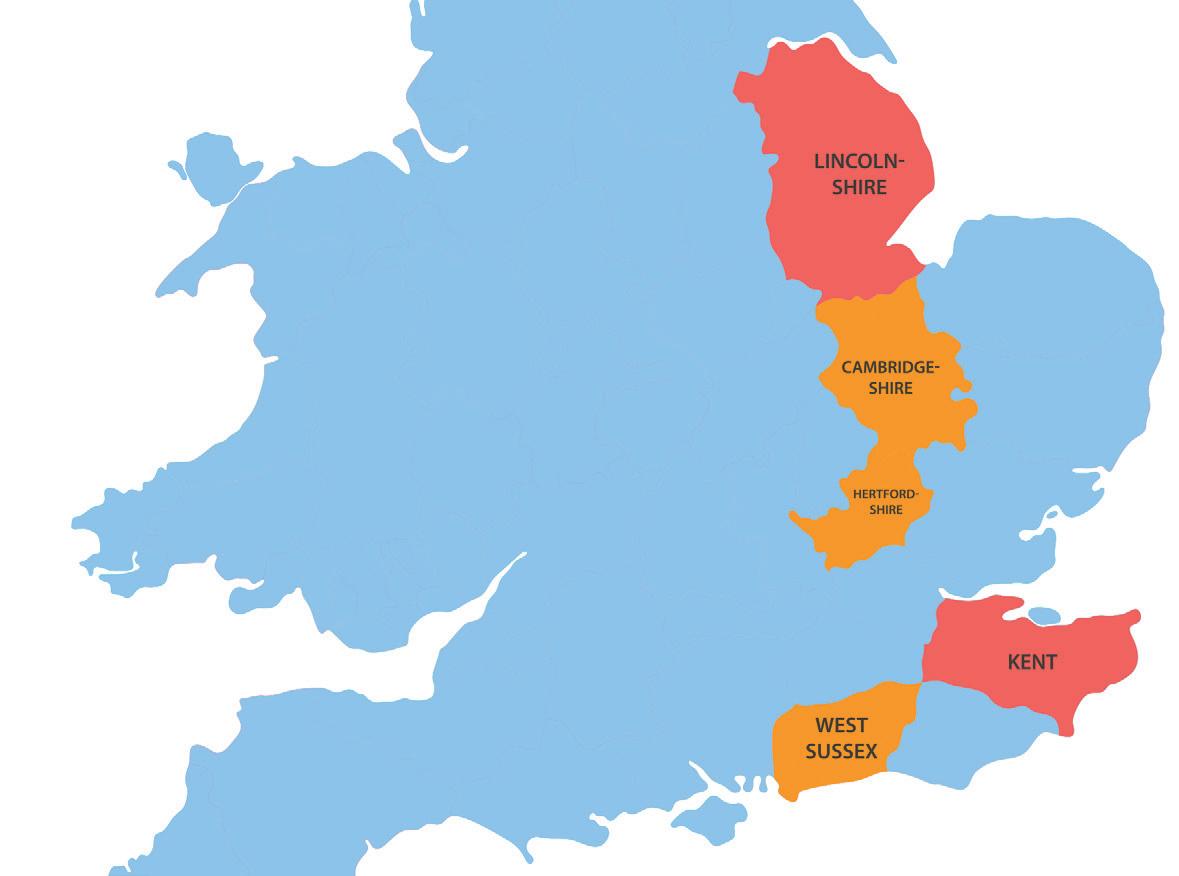
The combined turnover of the FPJ Big 50 is £12.2bn. This is roughly equal to the 2023/24 revenue of American cosmetics giant Estée Lauder, which owns a host of beauty brands. The total is over £1bn higher than last year’s.
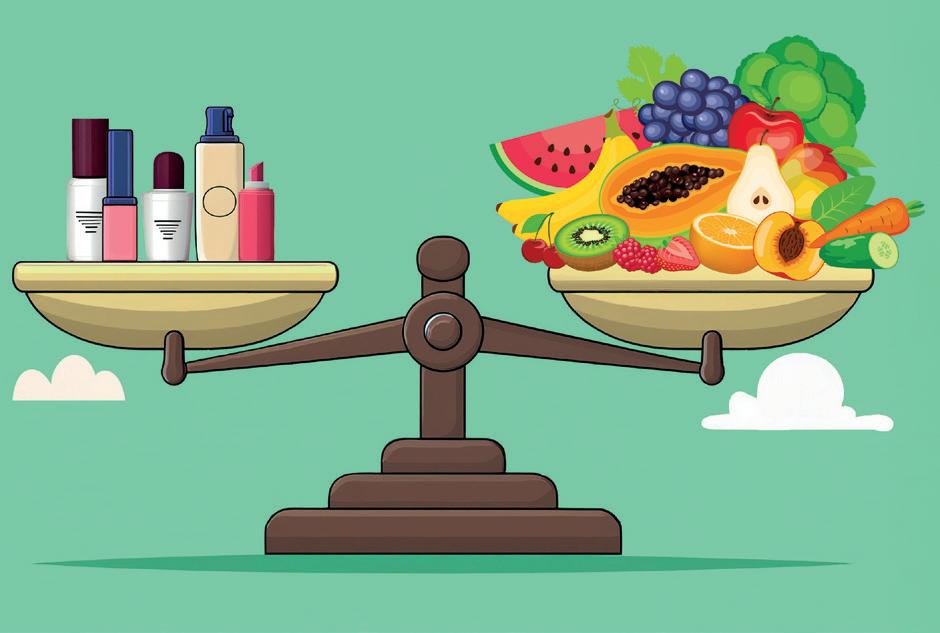
£12.2bn
If tomatoes and avocados are counted as vegetables, there is an even split between suppliers that major in fruit and those that focus on veg. There are 20 in veg, 19 in fruit, and the other 11 can be considered ‘all-rounders’.
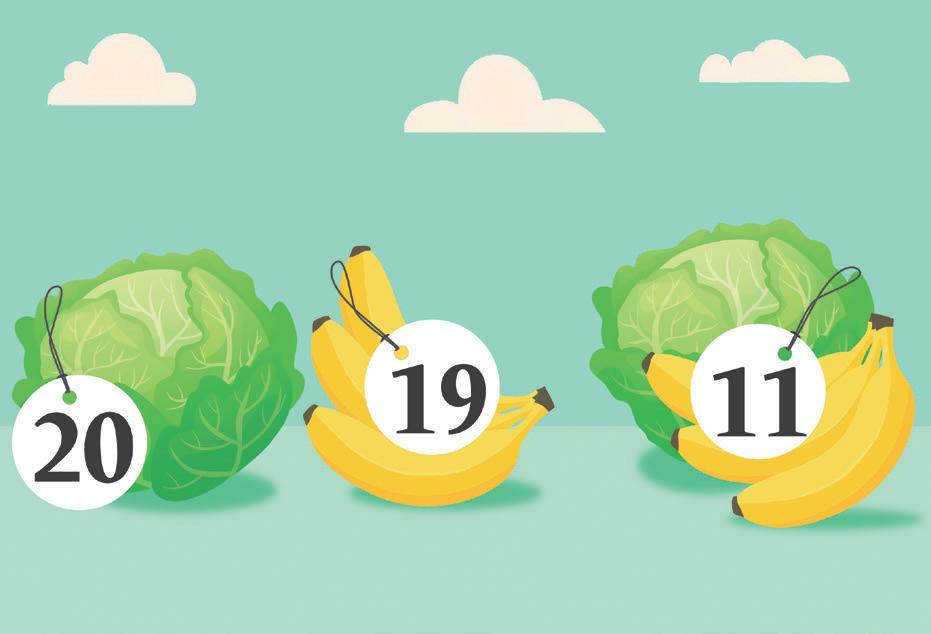
Kent and Lincolnshire are the main hotspots for companies in the FPJ Big 50. Each county is home to the UK head office of seven businesses. Meanwhile, Cambridgeshire, Hertfordshire and West Sussex have four each.
Company has risen by one spot or more compared to last year
Company has fallen by one place or more
Company has stayed in the same position as last year
A new entry to the FPJ Big 50 Companies

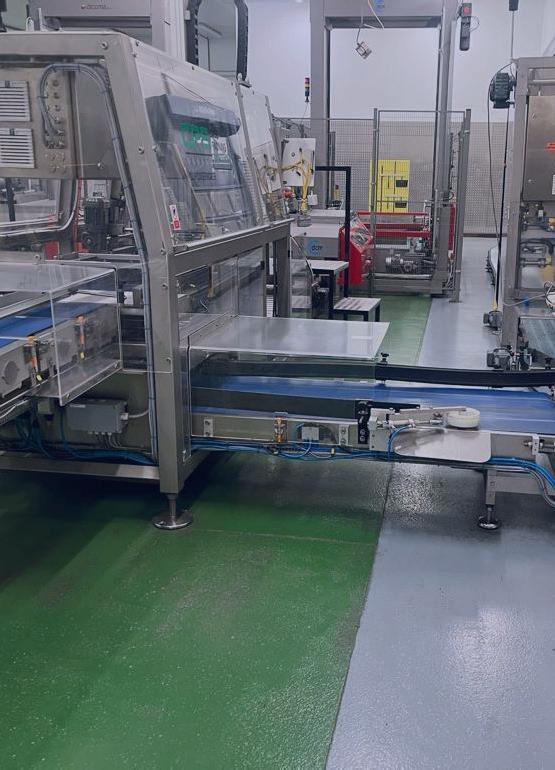
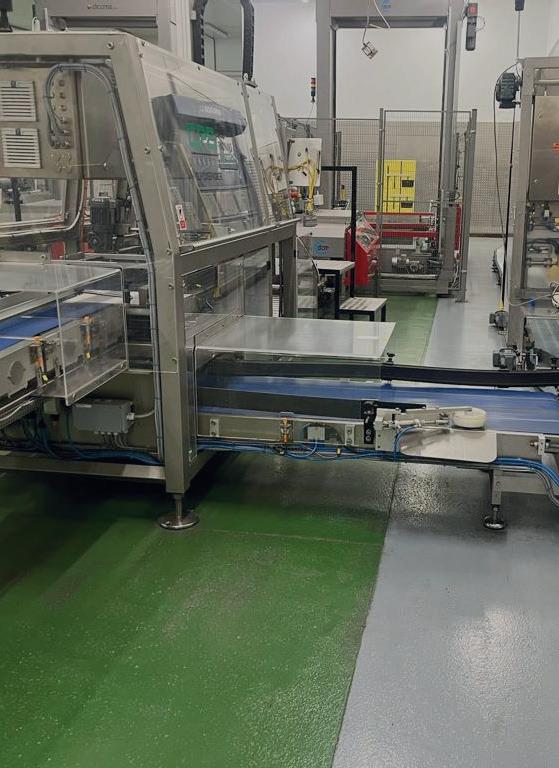
The big are getting bigger, and as the challenges facing the industry mount, the landscape of fresh produce supply is changing. Michael Barker reports

The age of the fresh produce mega-business has well and truly dawned.
When FPJ launched the first Big 50 Companies report exactly a decade ago, Total Produce topped the list with what now seems a relatively modest turnover of £380m – a figure that would barely see it scrape into the top 10 this year. At that time, the idea of a billionpound fresh produce supplier seemed fanciful in the extreme.
Fast-forward to today, and AMFresh has broken ground as the first company to top 10 figures for income, with its £1.1bn putting it into a category where it can legitimately be considered one of the country’s biggest food suppliers.
The remarkable thing is that the company is far from alone in going stratospheric. Asda’s directsourcing arm IPL, which languished in 17th place in the FPJ Big 50 2015 with income of just £137.4m, is hot on AMFresh’s heels, posting £908.4m in its most recent accounts. Indeed, the top five companies have all recorded income in excess of half a billion pounds, with DPS notable in particular for
having increased its turnover nearly tenfold in the space of just a decade.
One can point to various reasons for this trend. One is to do with the di cult nature of UK fresh produce supply – with its narrow margins and countless challenges – which has meant that operating at scale is one of the surest ways to survive. Numerous mid-sized businesses have fallen into distress, caught between trying to chase turnover and maintain profitability, leading to them either collapsing altogether or being gobbled up by more cash-rich rivals.
Then there’s the rise of the wealthy foreign owner. AMFresh, Dole, BerryWorld and Berry Gardens are all now run by multinational fresh produce heavyweights in a trend that is likely to further reduce the role of the traditional British family farm. It’s little wonder growers have been demonstrating so vociferously against the government’s controversial new inheritance tax rules, fearing a further erosion of this important demographic of UK food production.
According to new figures published by the O ce for National Statistics (ONS) in December, the book value of UK businesses acquired by foreign companies rose by £1.1bn in the third quarter of 2024, to £7.8bn. While that’s not a historically high figure, analysts say international buyers are attracted to good-value British assets that give them a route into the vast UK grocery market.
While the big talking point of last year – inflation – is still very much a live issue, particularly with onerous new minimum wage and employers’ National Insurance obligations on the horizon, companies at
least report some respite in terms of improved returns from retailers.
Resilience, however, remains the word on many directors’ lips this year, as cost pressure, unpredictable weather, post-Brexit border frustrations, and the instability of global political events continue to mean this is not a business for the fainthearted.
Despite all that, companies are still growing, still investing, still innovating, and still meeting increasing demand for healthy fruits and vegetables, all with a stoicism and optimism that can only be admired.
In the background, they are lowering their carbon footprints, reducing waste, trialling new varieties and production techniques, and growing produce that tastes better and stays fresher on shelves for longer.
The landscape of Britain’s fruit and vegetable production and supply continues to change, but its heart and soul very much remains. fpj
ABOVE—Turnover at the biggest suppliers has surged in the past decade



Despite significant growth at many of the other companies in the top 10, AMFresh comfortably remains the UK’s biggest supplier. In the year to 31 August 2023, it became the first to break the £1bn mark – a sign of the company’s huge ambition.
AMFresh attributed its 17 per cent turnover growth to its continuity of supply, people-centric approach, innovation and sustainability. And Ian Wood, MD of AMFresh UK and Northern Europe, notes that the development of patented citrus, grape, melon and topfruit varieties has bolstered the company’s “leadership in delivering unique and exciting options for UK shoppers”.


Alongside this, Wood is keen to emphasise the supplier’s “steadfast commitment” to ethical sourcing, regenerative farming, efficient water usage, and waste reduction.
AMFresh invested in a new freshly squeezed juice facility in Lancashire in Q1 2024. And looking ahead, Wood says AMFresh is well positioned for “continued organic growth”, with a focus on integrated digital systems, strengthening supply chain strategies, and expanding varietal innovation.
The £1.1bn turnover was calculated by combining the revenues of its UK entities: AMFresh UK, AMT Fresh, Tropical Fresh, AMFresh Freshly Squeezed, Avalon Fresh, and MM Flowers.


IPL supported the roll-out of Asda Express convenience stores by developing a tailored range of fresh produce
IPL’s turnover shot up in the year to 29 December 2023, an increase of almost £100m on the company’s restated 2022 turnover of £808.6m. As Asda’s dedicated sourcing arm, the company supplies the retailer with a wide range of fresh produce, grocery products, wine, house plants, and flowers.
Key decisions in 2023 included the expansion of IPL’s southern packing facility in Kent, consolidation of all banana ripening at the Kent site, and closure of another IPL ripening facility in Yorkshire.
In 2023, IPL also decided to close its operations in France, the Netherlands, South Africa, Morocco and Chile, moving towards what it described as “a more efficient
model” for working with suppliers in these markets. Meanwhile, in the UK and Ireland, IPL supported the roll-out of Asda Express by developing a range of produce especially for the c-store format.
In a bid to strengthen the firm’s sustainability, IPL’s directors also decided to expand the company’s commercial and ESG teams.
However, there will be some concern at IPL as Asda continues to struggle. The retailer has been losing share for over 10 years and has had three CEOs in the past 14.
In a 2024 comment piece for FPJ, Ged Futter of The Retail Mind argued Asda had “forgotten that retailing is about the basics of stores, price and availability”.


Dole UK continued its revenue rise in 2023, with turnover increasing by nine per cent thanks to growth in the company’s retail channels.
As a global business, Dole is among the largest fruit and vegetable suppliers in the world, following its merger with Total Produce back in 2021. And the supplier’s British arm, Dole UK, is going from strength to strength, thanks to continued growth of its retail business.
MD Mark Owen says this has been driven by a combination of “innovation and flexibility”. However, he acknowledged there was deflation in Dole’s wholesale and
foodservice sectors in 2023.
Organics are a growing focus for Dole, and in October 2024 the supplier announced the full roll-out of its Dole GO Organic! range in Ireland. Dole says it wants organic fruit and veg to be a mass-market proposition rather than a niche, and hopes its range of 30 product lines will inspire shoppers to integrate more in their diets.
Another recent development for Dole was its introduction of Irish-grown Honeycrunch apples under its Irish produce brand Grá. Dole has an exclusive licence to sell the variety in Ireland and says production is set to increase in 2025.

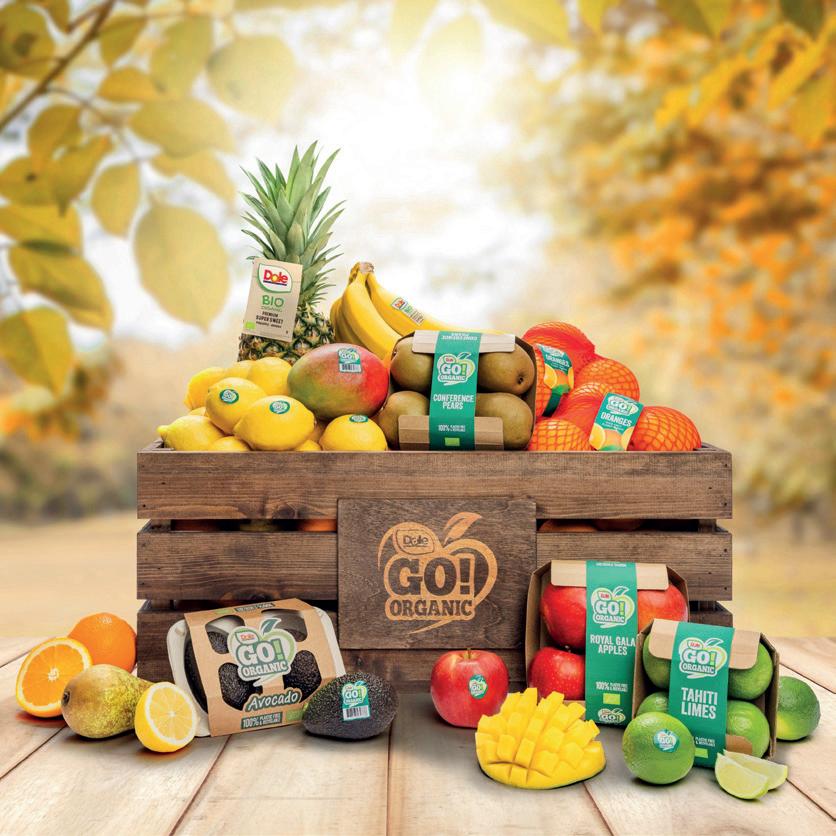
Dole is focusing more on organic fruit and vegetables and wants to make them accessible to more shoppers
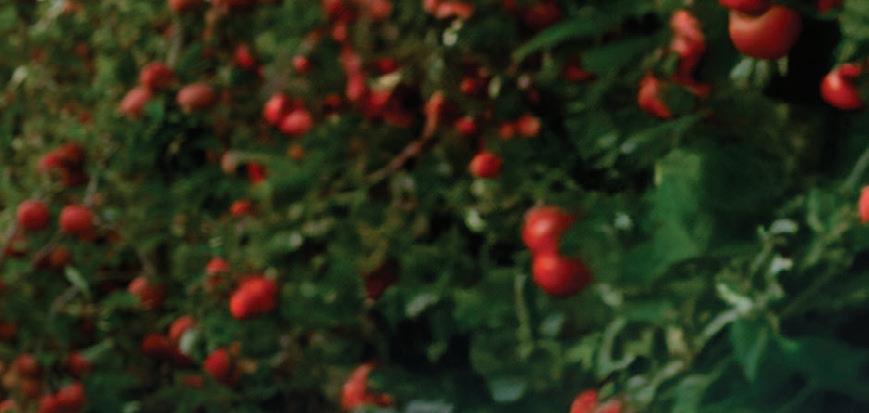
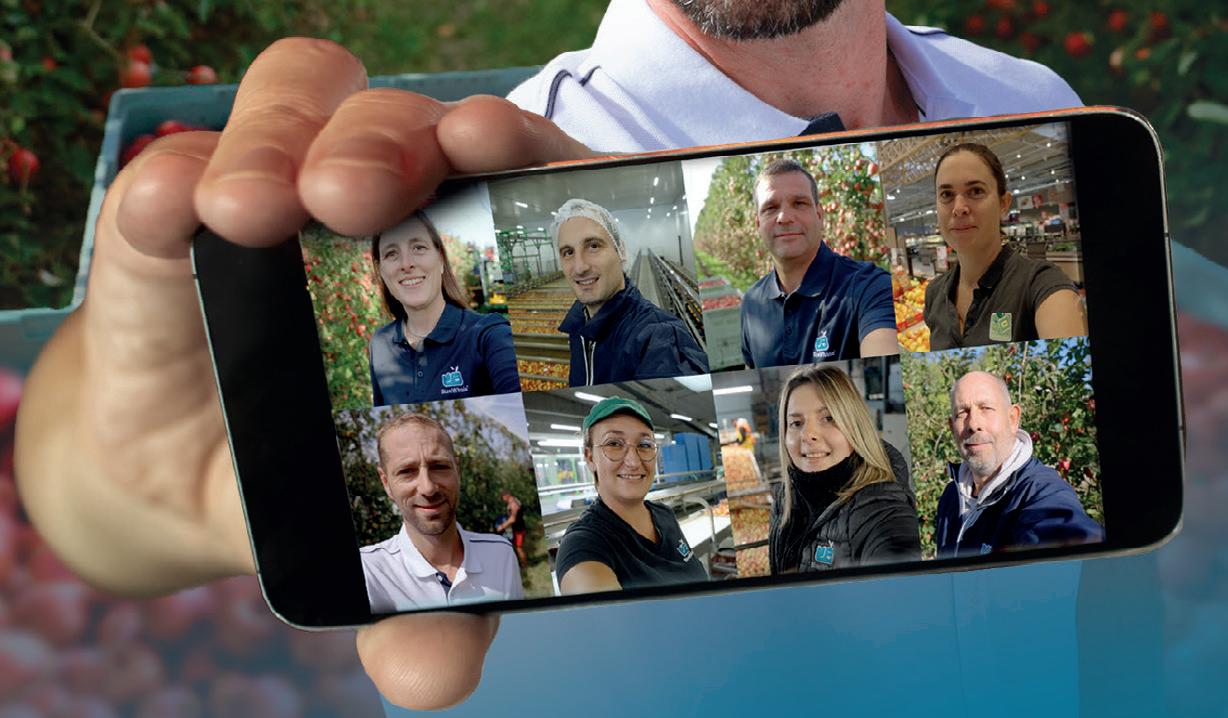















G’s appears with a turnover from the year to May 2023, the same period that FPJ referenced last year, but the amount has increased considerably after the supplier restated turnover to include revenue from the US and Czech Republic.
The scale of the salad veg giant’s revenue shouldn’t disguise the challenges it faced. In the G’s Group financial report, CFO Francis Laud highlights the impact of both the war in Ukraine and the cost-ofliving crisis in lowering operating profit from £4m to £3.1m. He adds that the underlying profitability of the group slipped due to cost inflation and lower demand across higher-value product lines.


Despite these challenges, the group continued to invest in boosting its efficiency and minimising the impact of inflation on its customers.
Over in Spain it was a different story. As well as comprising the turnover of G’s Group, the £687.5m figure includes revenue from G’s Spain, which notched up €214.3m (£188m) and swung from a pre-tax loss of €30.5m to a profit of €8.9m. Laud puts this down to “the strategic focus on profit improvement” in business units that had not been “positively contributing”.
In October 2024, the company also celebrated four million meal donations since first partnering with FareShare in 2017.
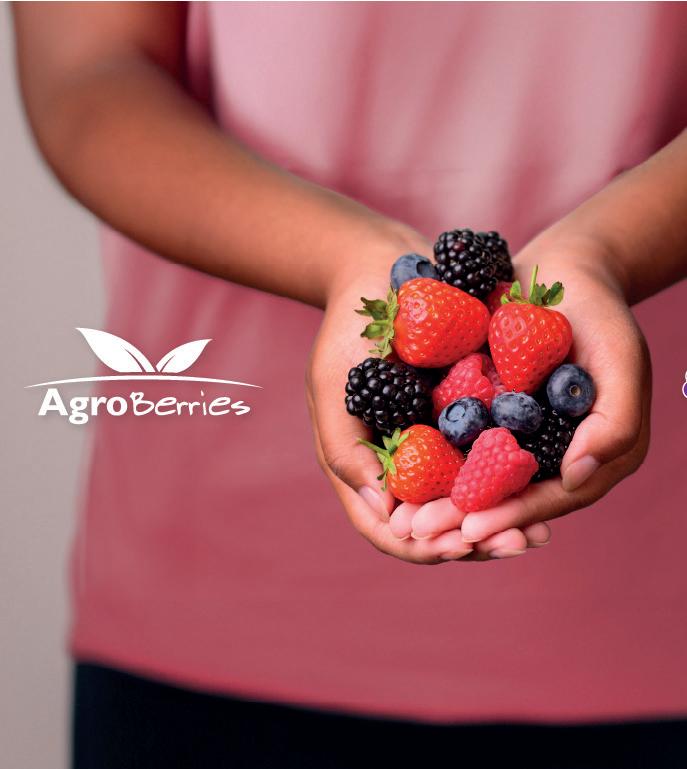


Global soft-fruit giant BerryWorld saw its turnover leap to £547m in 2023, a £38m increase on the year before. According to the supplier, a variety of economic, climatic and political issues affected business in 2023. “El Niño, in particular, impacted our southern hemisphere season,” says BerryWorld Group CEO Adam Olins, “whilst cooler weather in the Iberian growing region also impacted yields. However, this was compensated, to a degree, by higher pricing in the market.”
BerryWorld continues to invest in expanding its growing regions and has begun commercial production of blueberries in Egypt and northern Morocco. Meanwhile,
revenue for the PrepWorld business increased significantly in 2023 after moving to a new prepared fruit facility in Kent. This allowed PrepWorld to launch new product lines and win new customers.
The past year was another big one for BerryWorld, which celebrated its 30th anniversary in 2024 by being acquired by global berry grower-marketer Agroberries. The landmark deal created the second-largest berry company in the world.
It was also a successful year for prizes, with BerryWorld picking up Superior Taste Awards for three new varieties, as well as winning three FPC Fresh Awards, including Fresh Produce Business of the Year.
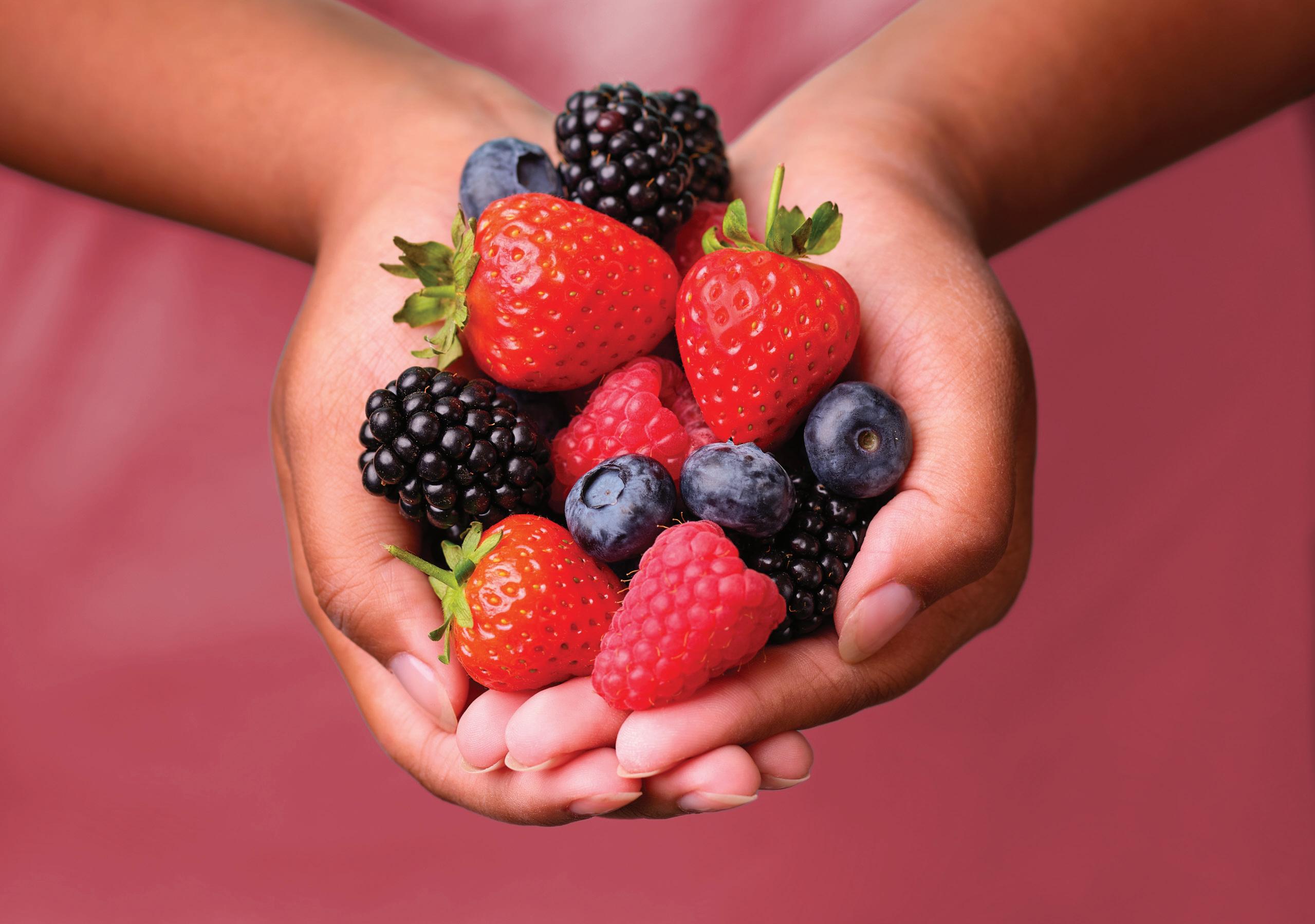







DPS continues to invest in capability and capacity. During 2024, the fruit and veg supplier further expanded its operational footprint and upgraded its ripening facilities to accommodate growth in both its fruit and salads businesses.
According to commercial director Stuart Baxter, a stand-out theme for DPS in 2024 – which he refers to as a “strong year” – was the relentless effort of the firm’s category teams to evolve sourcing plans in response to weather extremes and geo-political conflict. “This has paid dividends through the course of the year with improved quality and availability for Tesco, which has underpinned


further growth,” he said.
DPS’s latest reported turnover of £456.1m reflects 2022/23 performance, when DPS experienced more modest business growth as pre-season plans across various categories were challenged by weather extremes in some of its sourcing regions, Baxter explained.
This was most notable in salads from Spain and Morocco in Q1 of 2023, which adversely impacted availability across the UK and resulted in widely publicised shortages. “Across many of our categories, an increased frequency of extreme climate events remains the primary challenge we face from a quality and availability perspective,” he added.
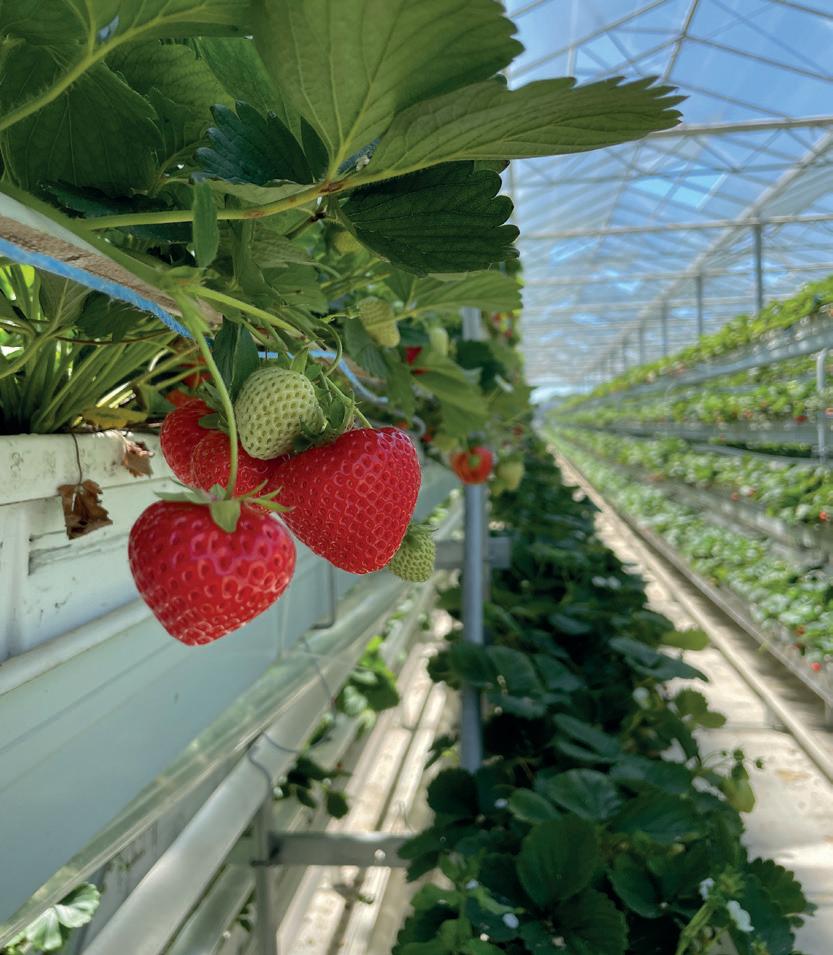
DPS has further expanded its fruit and veg operational facilities to accommodate business growth

After a £50m reduction in 2022, Flamingo’s UK turnover slipped by closer to £60m in 2023. According to UK CEO James Dale, this reflects strategic decisions and market challenges, with Flamingo refining its customer base and moving away from traded customers to strengthen long-term partnerships.
The business is a major supplier of flowers, vegetables and plants internationally. Indeed, if you include its revenue in Europe, Asia and the Middle East, the group’s total turnover was a whopping £600.7m in 2023.
Dale says the loss of a key contract in its plants category, following the collapse of Wilko, was a
“notable setback”. In addition, El Niño significantly disrupted production across South and Central America and East Africa, leading to service-level challenges. But Dale emphasises Flamingo’s “continued focus on building a resilient and efficient supply chain”.
In terms of ESG, Dale says Flamingo’s 2024 highlight was the success of its ‘Inua Dada’ programme to empower Kenyan women through financial literacy training.
Meanwhile, investments to enhance productivity and adopt cutting-edge agricultural techniques remain a priority on the company’s farms. And Dale says partnerships with Flamingo’s external grower network are expanding.


Fresca, which celebrated its 150th anniversary in 2024, appears in the FPJ Big 50 with a turnover excluding its share of JVs: £428.1m. However, there was an important change in that respect in the year to 26 April 2024. In October 2023, Fresca Group became the majority shareholder in Thanet Earth Limited after acquiring the shares of JV partner Rainbow UK, which now trades as Thanet Earth Peppers. In March 2024, Thanet Earth also moved into leafy salads by purchasing a 8.25-acre nursery in Chichester. Previously, Thanet Earth Limited had been accounted for as a
JV, but for the second half of the 2023/24 financial year its turnover was rolled into the Fresca figure. The effect of this, alongside growth in the main Fresca business, was to push up turnover by 25 per cent. In next year’s FPJ Big 50, Thanet Earth’s full 12-month turnover will be included in Fresca’s group revenue.
Looking ahead, another Fresca business, The Avocado Company, is set to benefit from its new £3m ripening centre, while potato and vegetable supply business Manor Fresh is planning significant investment in new grading technology to boost quality and crop utilisation.





















As we celebrate this remarkable milestone of 150 years, we want to express our deepest gratitude to the incredible people who have been part of our journey.
To our colleagues - thank you for your hard work, dedication, resilience and innovation. Your passion and teamwork have been the heart and driving force behind everything we’ve achieved.
To our customers - we are profoundly grateful for your trust and loyalty. Your continued support inspires us to strive for excellence every day.
To our growers, suppliers and corporate partnersyour commitment to quality and collaboration has been invaluable. Together, we have built relationships that form the foundation of our success.
This milestone is not just a celebration of our history, but a testament to the partnerships and shared vision we’ve cultivated over the years.
You have all been an integral part of our legacy, helped us shape a future filled with promise and opportunity, and helped us get our first 150 years under our belt!


Leading banana and pineapple supplier Fyffes had a testing time in the 15 months to 31 March 2023, with cost inflation and labour sourcing both proving difficult. Turnover was up on 2021, even if readjusted to a 12-month figure of £306.6m. However, pre-tax profits more than halved from £6.2m to £2.3m.
The company announced in February 2024 that the Fyffes brand, the world’s oldest consumer label for fruit, will be phased out in mainland Europe, to be replaced by Trudi’s, a brand introduced by Fyffes in October 2023.
Fruitnet reported that the UK and Ireland, where Fyffes still has a major corporate presence, will


retain the Fyffes brand for the time being, before a decision is later made on whether to switch to Trudi’s as well.
In September, Fyffes released its 2023 Human Rights Report, highlighting the company’s “continued leadership” in human rights and environmental due diligence, and ensuring the supplier would comply with a new EU Corporate Sustainability Due Diligence Directive and all other global due diligence legislation.
The supplier was also boosted by the news that its Honduran melon subsidiary Sol Group was awarded a Socially Responsible Company Seal for the second year running.

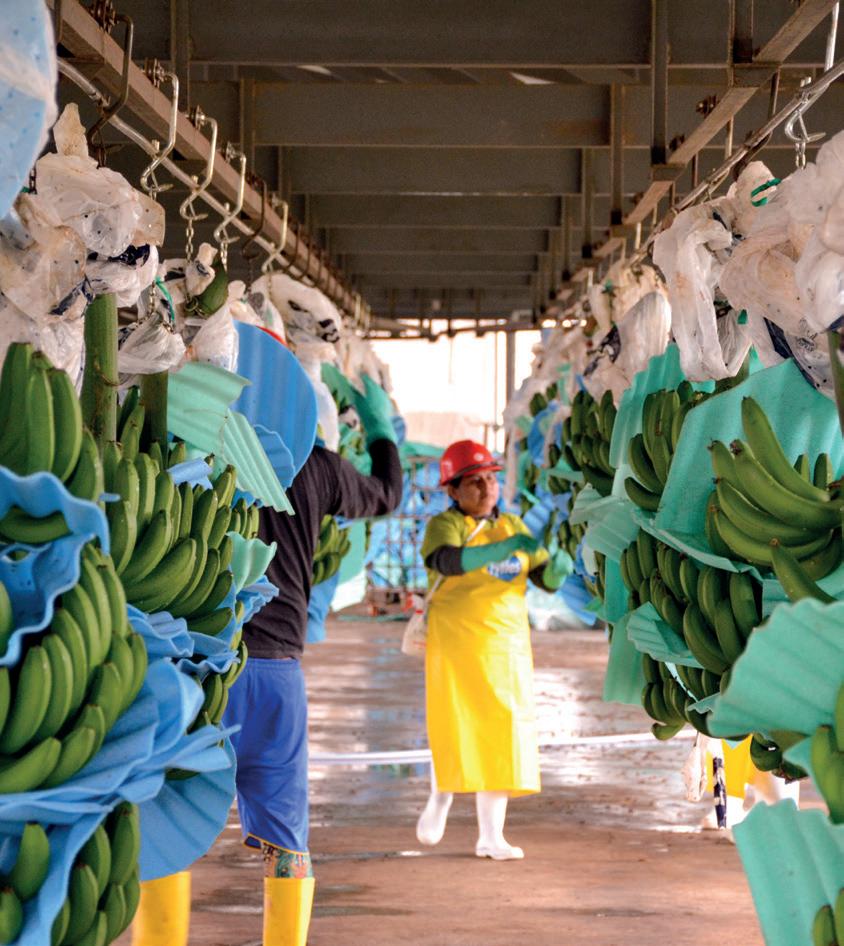
DFy es recently published its third Human Rights Report, ensuring it complies with a new EU sustainability directive
espite Driscoll’s established presence as a berry breeder for the UK market, it is still early days for the company as a UK supplier.
Driscoll’s entered the fray following its acquisition of Berry Gardens in November 2022, and due to the timing of the deal, the company appears in the FPJ Big 50 with an extended turnover for the 14 months to the end of 2023.
In its debut year the company had some standout moments, including winning a Superior Taste Award for no less than five of its soft-fruit varieties. In 2024 came the launch of the Driscoll’s brand at retailers such as Morrisons and Whole Foods, supported by a
*14-month turnover
‘Devoted to Delicious’ campaign that included out-of-home marketing in London, creative consumer sampling, and a fruit-gifting billboard on Brick Lane.
“Whilst private labels remain incredibly important to the UK market and will continue to be vital for the category and to us as a business, we feel there is a continuing role that brands can play in providing growth and bringing new consumers into the category,” says marketing manager Isla Haslam.
She adds that Driscoll’s will build on this momentum in 2025 with UK-focused creative campaigns, as well as continuing to invest in varietal development and sustainable growing practices.


Foodservice supplier Fresh Direct continues to navigate a volatile UK hospitality sector with aplomb. The Bicester-based firm, which is part of the Sysco GB group, reported a strong year of sales growth and profitability in its latest accounts, despite widespread sourcing problems at one end of the supply chain and instability within its customer base at the other.
Managing director Andy Pembroke credits the firm’s robust performance to greater collaboration across the Sysco GB network, which has allowed it to maximise business opportunities, deliver product solutions, and invest in its supply chain operations.


“The [hospitality] sector itself continues to be volatile, with inflation, the cost-of-living crisis and staff shortages all continuing to impact customer confidence,” he says. “Our focus has been on delivering solutions to address the challenges faced by our customers, securing product availability, and providing the right products and solutions to help address kitchen management challenges.”
Indeed, the fresh produce sector as a whole has found life difficult, Pembroke points out, with weather-related problems affecting availability. “Coupled with this, global conflicts and shipping delays have created significant challenges for the industry.”


IThe Bicester-based supplier’s results reflect greater collaboration across the
ncreased demand from its customer base and higher fruit prices have driven up SH Pratt’s bottom line for the second consecutive year.
The UK banana giant saw its revenue grow from £261.1m in 2022/23 to £302.8m in 2023/24, despite challenging climatic conditions, inflationary pressure and high fuel prices.
Managing director David Bateman says the firm was able to mitigate the impact of more frequent weather-induced shipping delays thanks to planning and risk management, as well as close relationships with growers and retail partners. This is a strategy that SH Pratt plans to pursue as climate
challenges intensify around the world.
The banana specialist’s acquisition in February 2024 of the commercial arm of Ripe Now, a specialist tropical fruit importer, signalled its intention to expand in the UK tropical fruit market.
“We want to give existing and new customers a one-stop solution for tropical fruit, from bananas through to mangoes, melons and pineapples,” Bateman says.
“It’s about driving interest alongside high-quality product, so consumers know that when they spend their money on fruit which is a bit more expensive, they are going to get the same great quality week in, week out.”


Monaghan Mushrooms hadn’t filed a new set of accounts by the time the FPJ Big 50 Companies went to press, so it again appears in this year’s list with figures for the year to 30 June 2022.
In that period, directors spoke of the firm’s improved customer service as a result of a deep and geographically diverse supply base, boosted by its relationship with its sister company in Ireland.
There have been plenty of new developments at Monaghan in 2024, however. In one particularly headline-grabbing move, the company became the first UK or Irish producer to grow peat-free mushrooms, removing peat from the


production process in a major step towards its carbon-reduction goals. The business claimed the new mushrooms, which launched in Sainsbury’s in the autumn, were also superior quality, with a firmer, whiter colour and longer shelf life.
Also in 2024, Monaghan continued to promote the health benefits of mushrooms to consumers, further boosting a category that the FPJ Big 50 Products 2024 notes is in both value and volume growth. This push has included highlighting mushrooms’ strength as a sustainable food source with a key role to play in modern diets, a fact that has gained further traction thanks to the product’s growing reputation as a meat substitute.
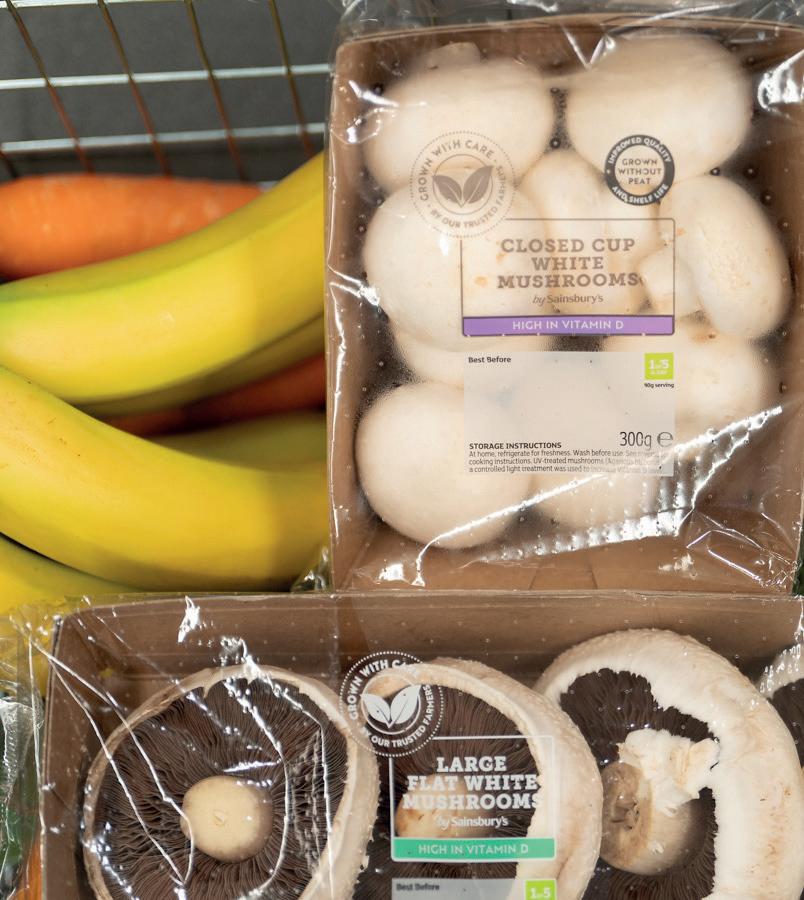

Airdrie-based potato giant Albert Bartlett rises three places in the 2025 FPJ Big 50 rankings as it continues to add value to its offer.
The company posted an impressive £43.1m increase in revenue in the financial year to 31 May 2023, as well as significantly improving profitability in what has to go down as an excellent year in the face of ongoing cost pressure.

For Albert Bartlett, the focus of growth plans is on added value, particularly in the chilled segment. In fresh, meanwhile, it has continued to invest in consumer brand engagement and developing category insight to enhance NPD, ranging, and activity decisions.
Highlights of 2024 included the eye-catching purchase of the Jersey Royal Company in March, as well as being named Retail Supplier of the Year at FPJ’s Festival of Fresh in June.
“We have continued to invest across our operations and supply chain infrastructure to ensure security of supply and to enable growth for our farming partners and customers,” says brand and marketing director John Hicks.
The company is promising a busy 2025, including new product development in chilled and frozen, as well as consumer advertising in fresh. A ‘Roll on Jersey Royal Season’ campaign will also land in the spring.

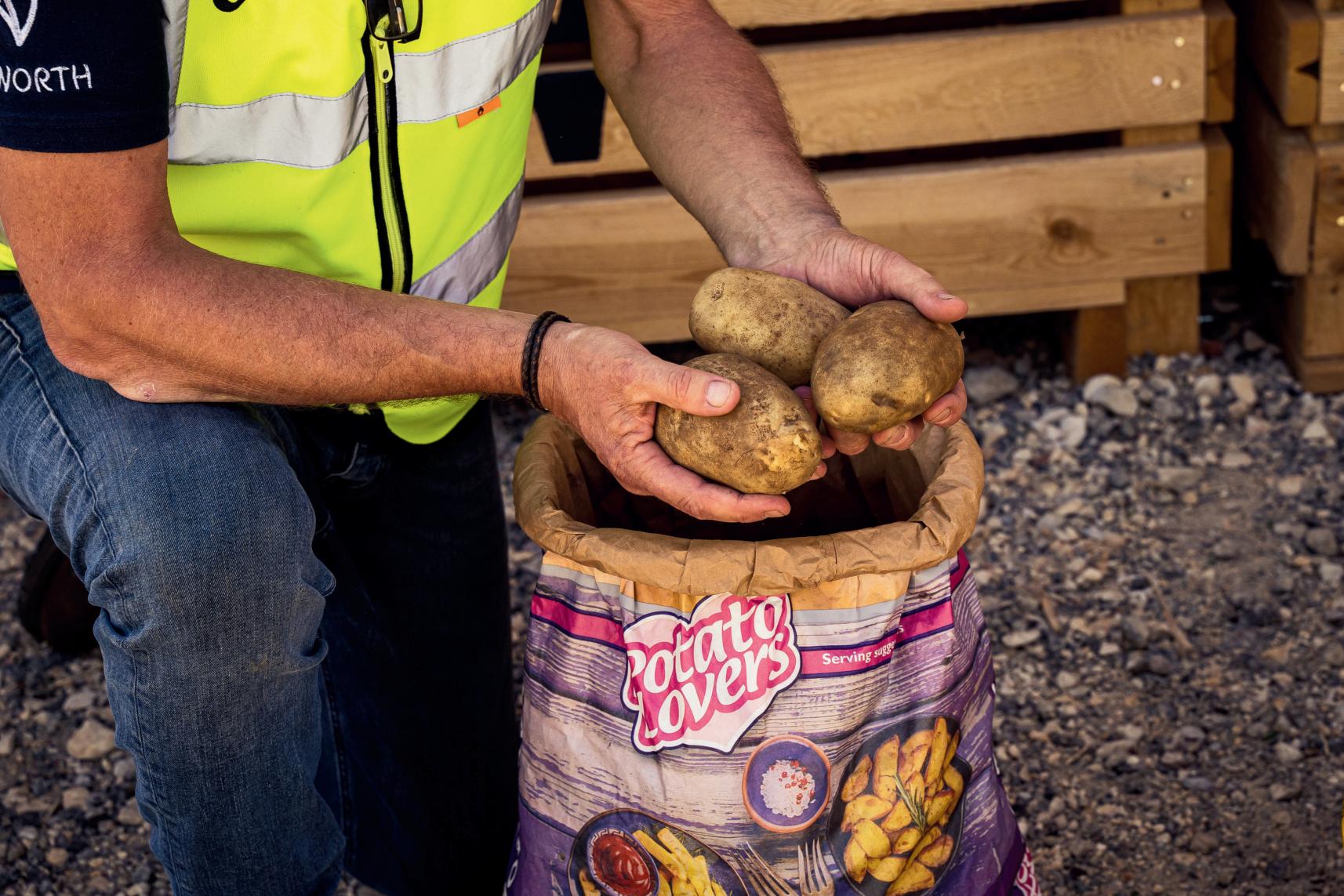
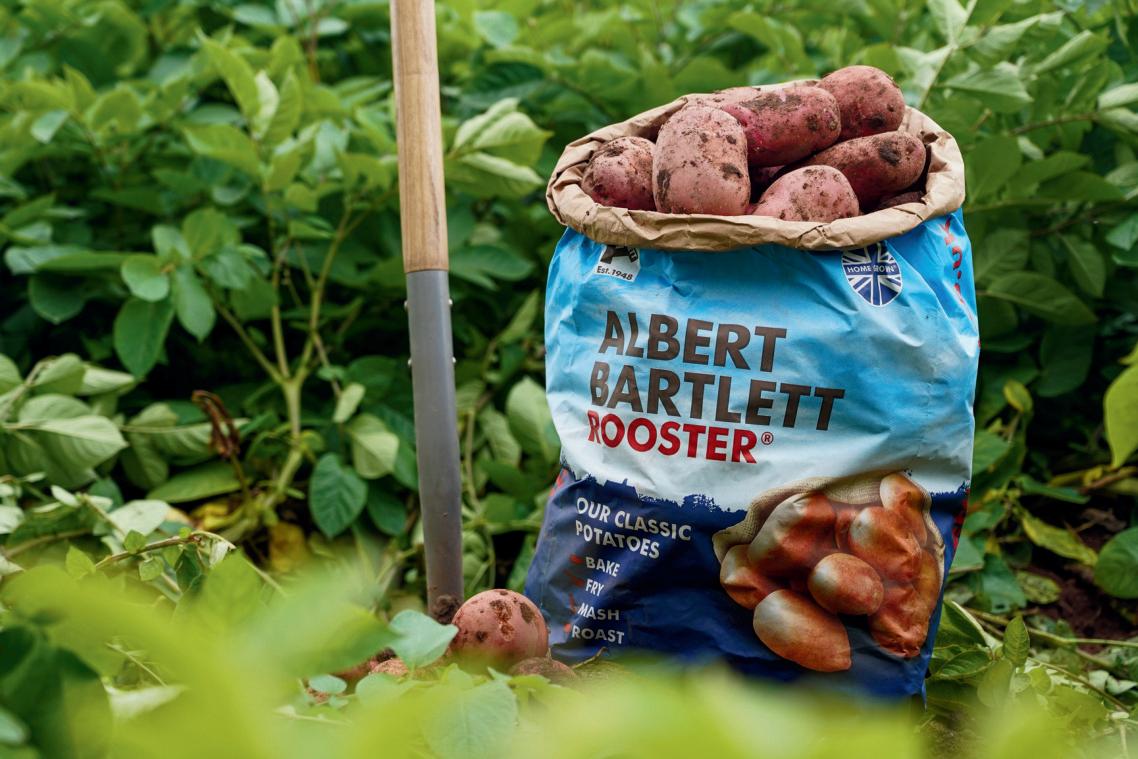
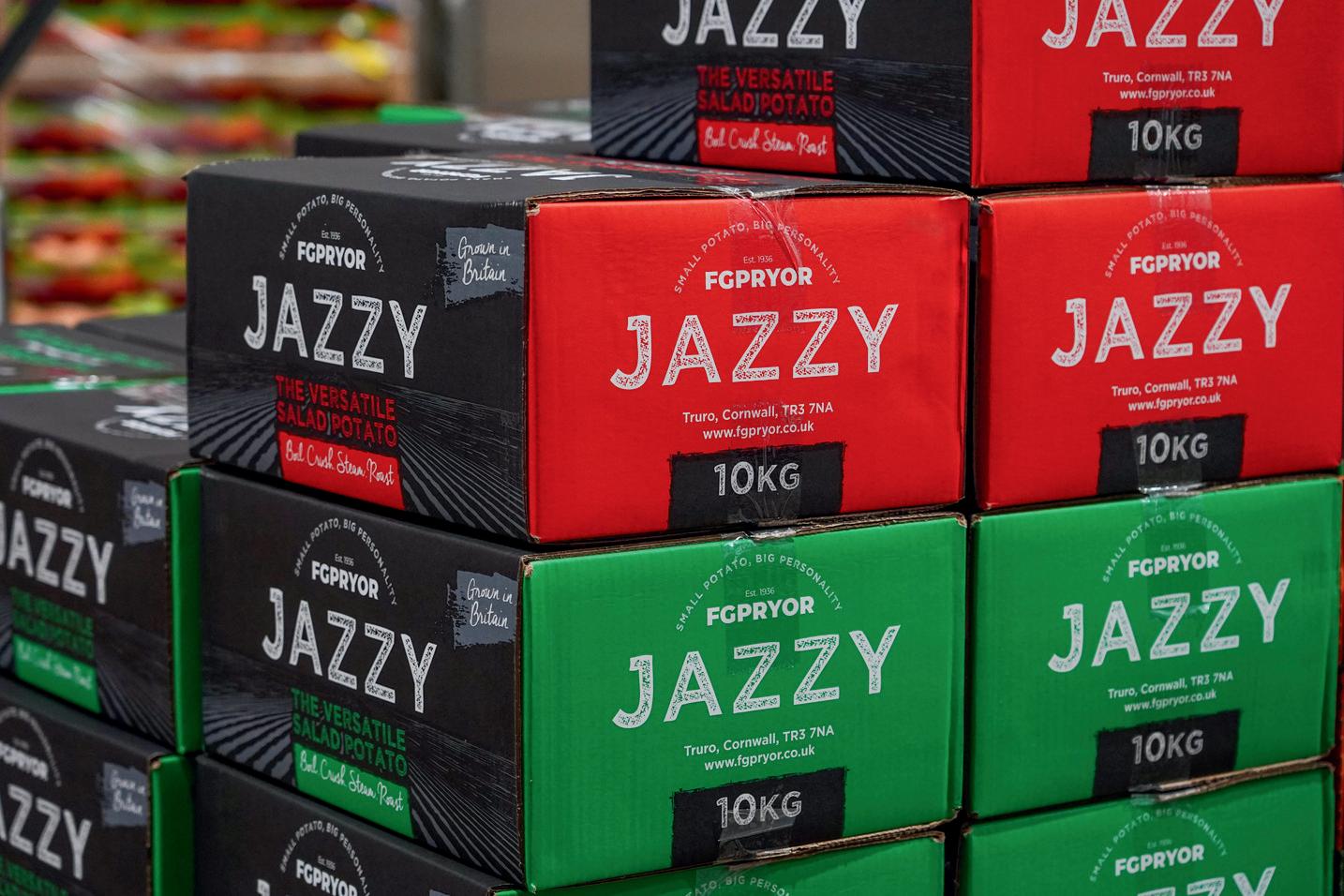
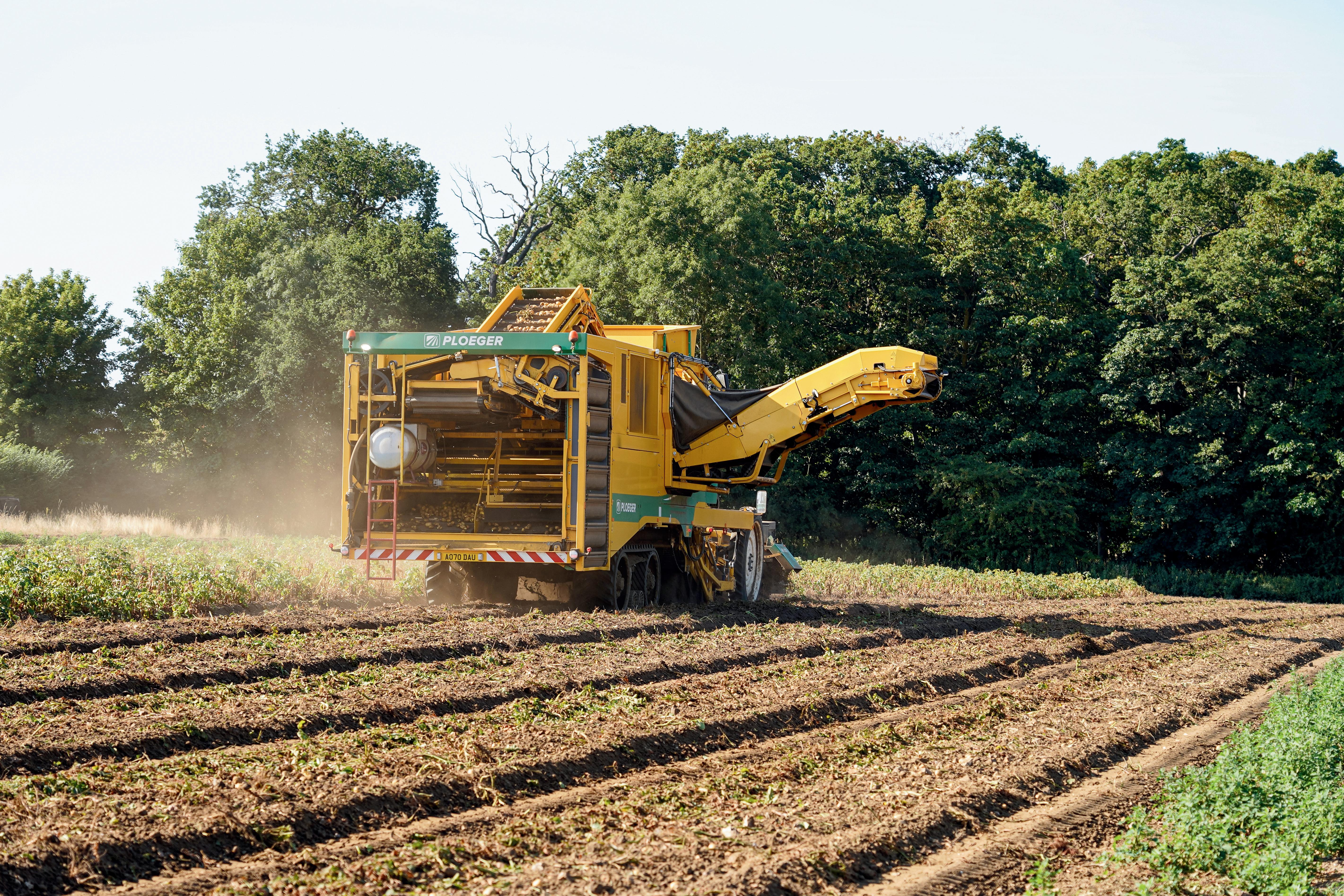


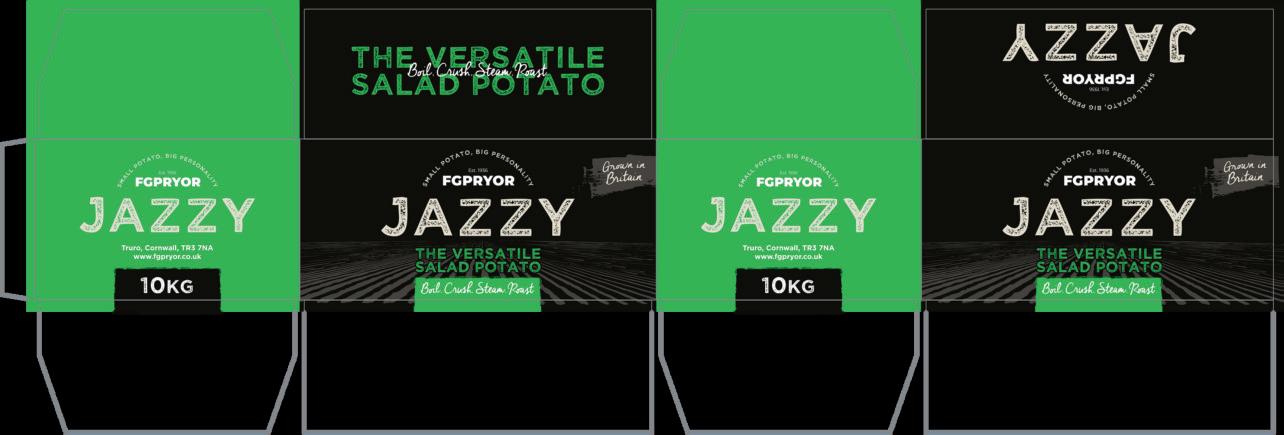










Sussex-based bagged salad supplier Nature’s Way Foods saw revenue fall slightly to £227.1m in the year to 29 March 2024.
The 3.8 per cent drop in turnover reflected a combination of category decline, and a rationalisation of SKUs and customers to drive profitability, according to the company’s financial report.
The directors said the firm mitigates the increasing risks associated with the vagaries of Mother Nature through seasonal contracts with key suppliers. They added that in a bid to hold on to its “few large customers” – which include Tesco, Aldi, Morrisons, Pret and McDonald’s – the company invests in a


high level of service and product quality.
Diversity of product in several categories is also crucial, according to the supplier’s directors. Indeed, Natures Way Foods’ range spans bagged salads, salad bowls, coleslaw and potato salad, as well as salad meals.
Impressively, 2024 marked 30 years since two brothers, Robert and David Langmead, started their West Sussex bagged salad operation with a goal to supply locally grown lettuce using the latest food manufacturing technology.
Three decades on and Natures Way Foods now employs over 1,000 full-time staff across its four UK factories.
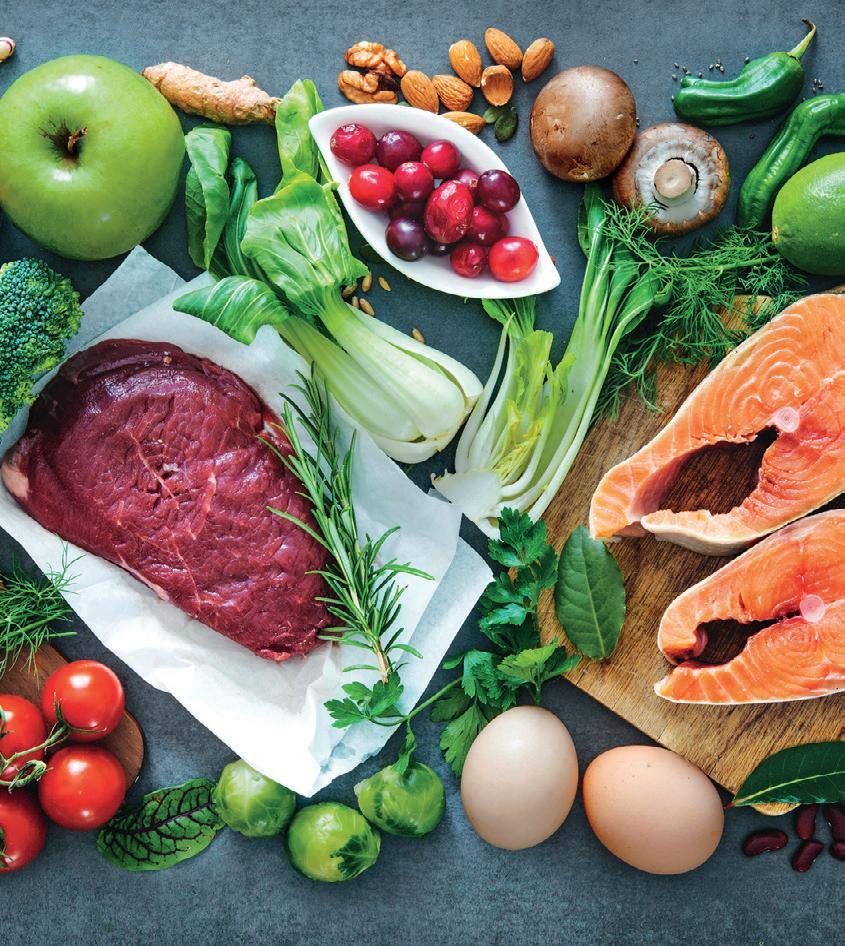
As well as supplying fruit and vegetables, Reynolds now also deals in meat, fish, cheese and dairy

Following a strong post-pandemic recovery, 2023 was another successful year for Reynolds. The multi-category foodservice supplier retained 16th place in the FPJ Big 50 and saw turnover increase by over £20m to £222m. Profitability was also strong, with pre-tax profits almost doubling from £2.4m to £4.6m.
Commercial director Andy Weir singled out inflation as the biggest factor affecting financial performance in 2023, both in terms of product costs and overheads. Nevertheless, Reynolds continued to work on several strategic projects, including acquisitions and technology development.
In September 2023, Reynolds
acquired 80 per cent of Scottish foodservice supplier Braehead Foods. The Kilmarnock-based business has a production kitchen, allowing Reynolds to offer more bespoke added-value recipe solutions, thereby helping customers mitigate labour shortages in their own kitchens.
Meanwhile, frozen distribution has become a larger part of the business in recent years, with Reynolds investing in a new facility in Chelmsford to store and handle frozen products more efficiently. Looking ahead, Weir says continued investments will allow Reynolds to widen its product ranges and services, adding further value for foodservice customers.


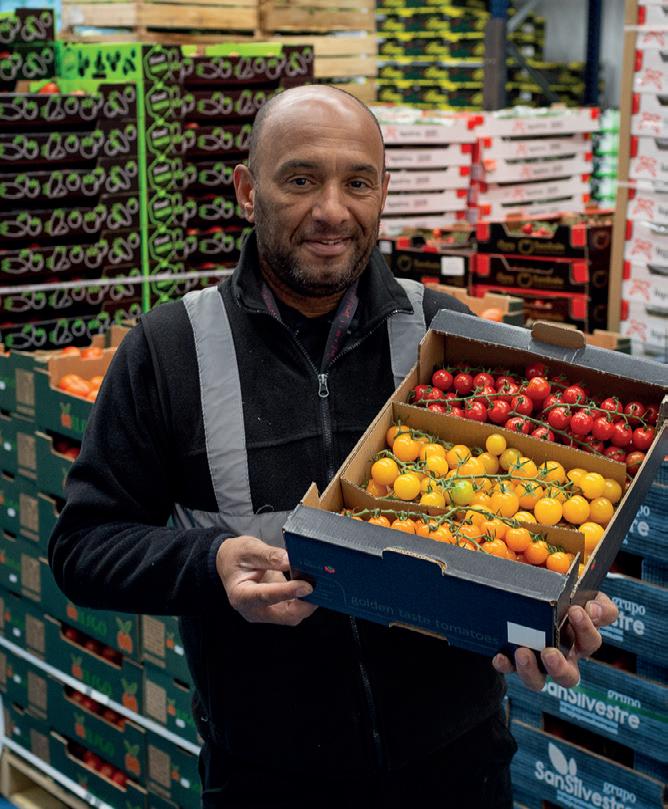
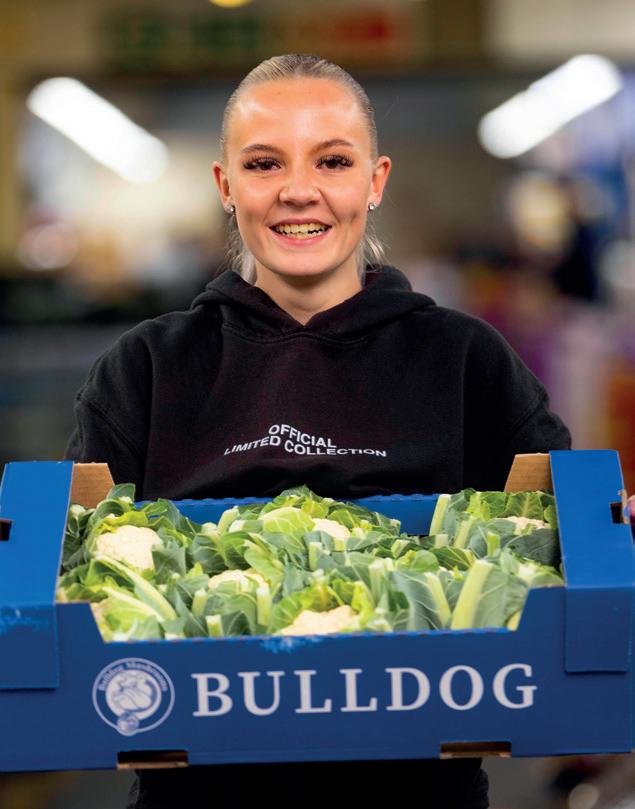



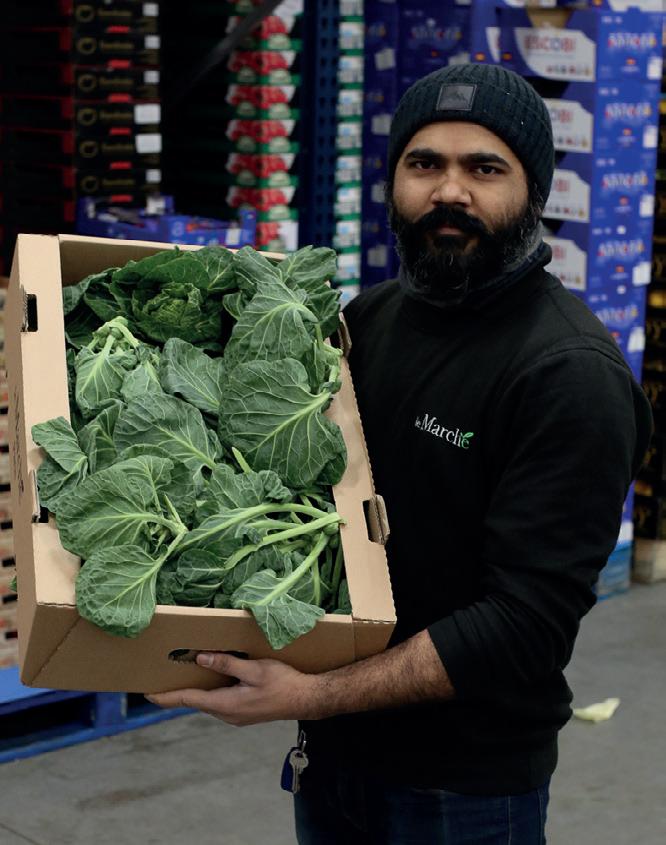
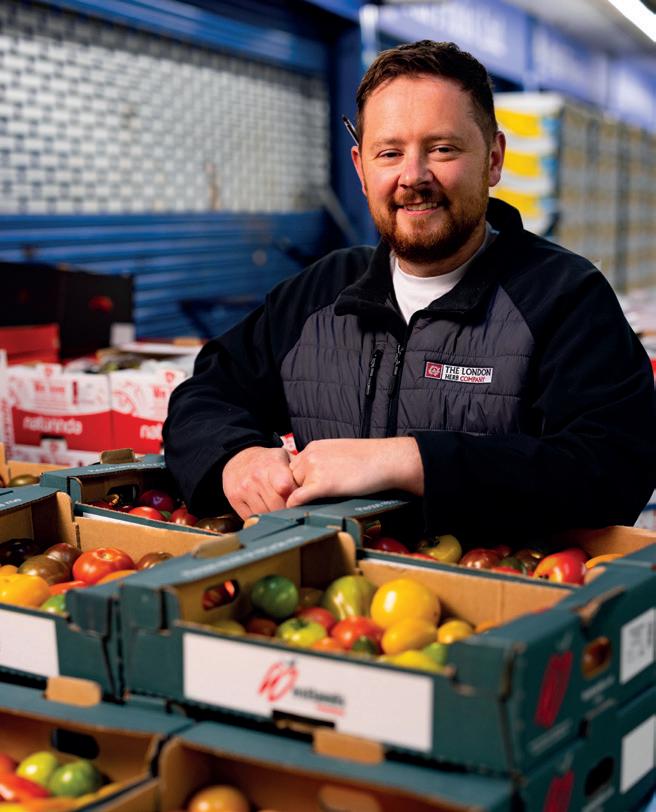



Branston has never been a business that stands still, and the dynamic potato supplier has continued to invest and diversify in the past two years.
In 2024 the business opened two brand new factories, including what it claims to be the UK’s largest mashed potato factory. The site in Lincolnshire is expected to produce 23m packs of mashed potatoes in its first year of operation, for supply to Tesco. On the farming side, Branston has doubled production of hybrid potato variety Nemo – a fast-roasting potato that cuts cooking time by 25 per cent.
Group CEO Jim Windle notes that the year to 30 July 2023, for which Branston filed its most


recent accounts, was a challenging one due to surging raw material and energy costs. But the company fared remarkably well, with revenue rising by 13 per cent to £211.3m. Meanwhile, pre-tax profit increased by 23 per cent to £3.5m.
Sustainability efforts continued with a trial exploring new ways to reduce carbon emissions in potato production, from growing through to storage and transport, as well as the introduction of Branston’s first fully electric truck.
“We remain cautiously positive for the future,” says Windle. “Recent investments have been delivered on time and to budget and we look forward to embedding their capability.”
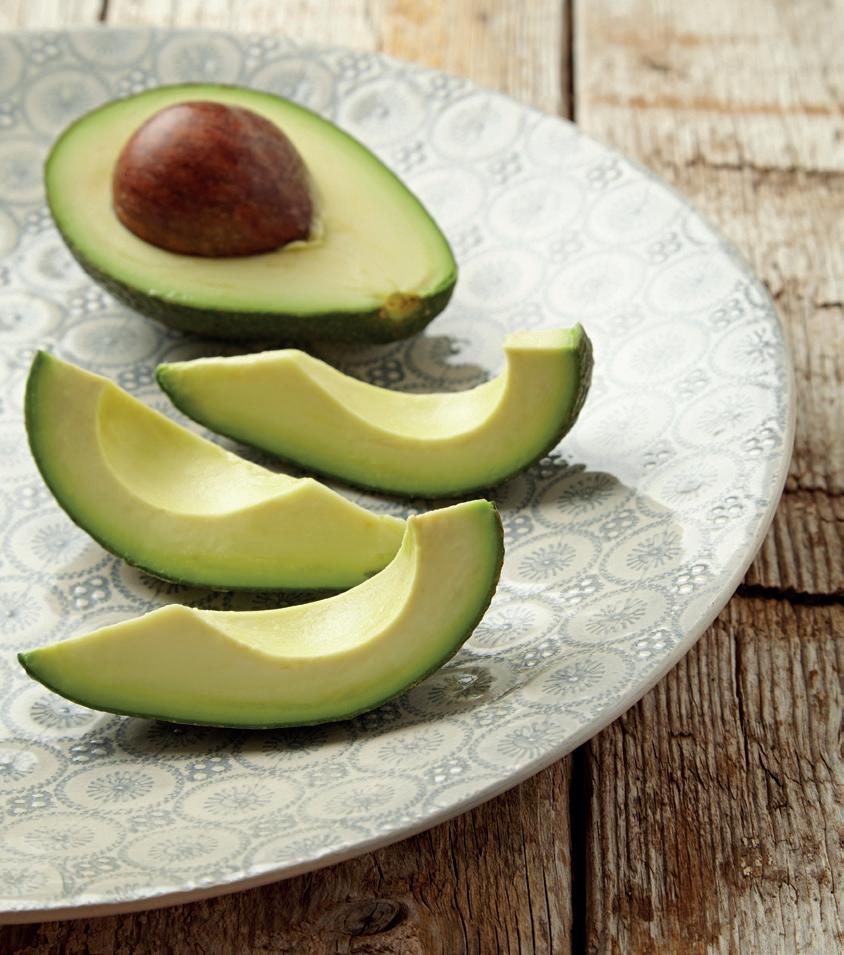
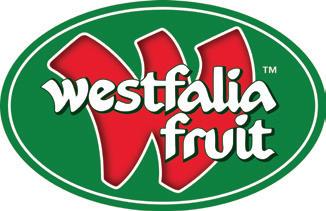


Mitigating unpredictable global weather patterns and international logistical challenges topped the agenda for Westfalia in 2023, when it filed its most recent accounts.
The avocado specialist saw supply affected by extreme climatic conditions, particularly in Peru, as well as by shipping crises in the Red Sea and Suez Canal. Yet the firm says it navigated the difficulties thanks to the resilience of its strong network of growers, logistics partners, and local teams.
On a more positive note, Westfalia saw UK demand for avocados continue to grow – a trend that continued into 2024, which proved something of a stand-out year.
First and foremost, 2024 marked 75 years since Westfalia was created by founder Dr Hans Merensky with a mission ‘To Do Good’ – an agenda it still pursues with a raft of social and environmental responsibility initiatives.
In addition, 2024 was notable for wider availability of Westfalia’s premium Gem avocados; the launch of a single-serving smashed avocado pack; the roll-out of laser ‘tattoos’ to replace PLU stickers; and the introduction of more recyclable packaging.
The supplier’s UK facilities also now incorporate customised robotic packing, giving Westfalia extra flexibility to manage changes in pack formats.


Keelings International reported a strong trading performance and a rise in profits in the 12 months to 25 November 2023.
The supplier enjoyed higher sales across the board by supplying more lines to existing customers, according to its group of directors. The board said it was “satisfied” with the £206.5m turnover derived from the company’s three business units: Keelings International, Keelings Fresh International, and Keelings Las Brisas.
“Set against the backdrop of macro market challenges, Keelings has been stable year on year and is looking towards green shoots ahead as shoppers increase fre-


quency of purchase and basket items across its customer portfolio,” says managing director Charlie Heather.
In its financial report, the group said it would continue to identify and develop new business opportunities in search of continued growth.
Indeed, 2024 was a busy year for the Irish-owned family business, which farms across Ireland, Costa Rica and Brazil. Not only did its European arm Keelings Fresh International acquire French fruit importer Caposud, but the group’s Costa Rican pineapple farm Keelings Las Brisas was awarded carbon-neutral certification by SCS Global Services.


Birmingham-based fresh fruit and vegetable supplier Minor, Weir & Willis saw revenue rise in 2023 against a backdrop of inflationary pressures.
Net turnover increased by 15.5 per cent year on year, pushing the grower-packer-importer up a place in the FPJ Big 50 rankings.
In the firm’s 2023 accounts, group finance director Rajinder Gill wrote that the business had navigated well the combined challenges of raw material cost rises and the cost-of-living crisis in 2023. However, he said margins will be tighter going forward as supply and operational costs continue to affect the bottom line.
Gill added that the company’s
vision is to continue being a leading player in the UK fresh produce industry with an integrated supply chain, from farming to logistics, and long-standing relationships with customers and suppliers.
“The board recognises that a coherent and viable strategy is required, which must be nimble and responsive, have a modern infrastructure, and grow its global reach,” he wrote.
“In 2023, and following through into 2024, this approach was evident from significant investment in both farming, automation and investment in our supply base, which has allowed [us] to offer continued supply and better value to customers.”


Sussex sweetcorn and speciality veg outfit Barfoots had another positive year, increasing both turnover and profitability in 2023.
Group chief executive Julian Marks says a restructure and significant internal promotions have formed a highly effective leadership team that has delivered growth alongside efficiency improvements.
Those achievements have come against the backdrop of continued input and labour cost inflation, as well as more unpredictable weather in Barfoots’ production regions. To combat the latter, the business is seeking new sources, as well as strengthening resilience in


existing production areas.
Marks reports that 2024 saw good levels of demand despite a grey summer with low light levels. Meanwhile, a new diversification opportunity with sweetcorn kernels for the frozen sector has proven successful in its second year after a steep learning curve in its first.
Barfoots continues to see investment as the cornerstone of its business. Among other projects, it has installed automated production lines, put £2.5m of solar panels on factory roofs, invested in water treatment and reverse osmosis to create a closed-loop system for waste water, and focused on regenerative farming technology.

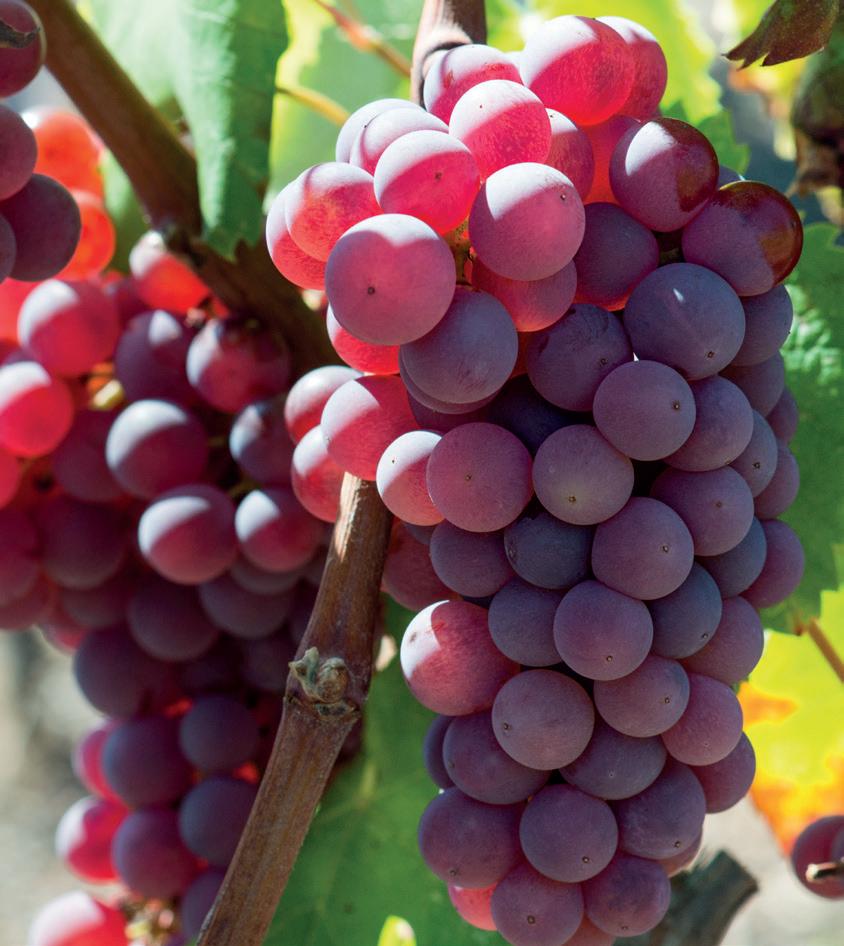
Direct fresh produce supplier Global Pacific Food Group brings more than 15m cases of fruit into the UK and Ireland from around the world every year. It is listed in the FPJ Big 50 for the first time in 2025.
The company’s 2023 turnover of £193m is consolidated from three sets of accounts that sit under the Global Pacific Food Group umbrella, namely Global Growers, Verri Berri and Global Fresh Growers Ireland.
Under the leadership of chief executive Jonathan Tremayne – a highly experienced former managing director at IPL, Emmett UK and G’s – Global Pacific has positioned
itself as a major supplier of grapes, citrus, soft fruit, topfruit, stonefruit and kiwis.
Sustainability is a key feature for the firm, with a focus on efficient water and energy use, alongside a number of wildlife initiatives.
Global Growers saw a 14.8 per cent rise in turnover to £136.3m in 2023, which directors said reflected a continued strong relationship with key customers. There was also a boost in net profit due to an overall improvement in the supply chain disruptions seen in the first half of 2022. “This has enabled the business to deliver quality products at the expected turnover levels consistently throughout the year,” the company’s financial report states.
FESTIVAL OF FRESH 2025 takes place at the home of FreshLinc in the vegetable-growing heartland of Spalding, Lincolnshire in June. We’ll be just across the road from Worldwide Fruit, who will host tours of their cutting-edge facility. So don’t miss your chance to be involved in the UK’s best fresh produce industry event!

Organised by In partnership with
FANTASTIC NETWORKING OPPORTUNITIES
INSPIRATIONAL SPEAKERS DELEGATE TOURS FRUIT AND VEG SAMPLING and DELICIOUS FOOD AND DRINK
For more information, contact us at festivalo resh@fruitnet.com or visit fruitnet.com/festivalo resh


Fresh produce grower-supplier-packer Nationwide Produce has filed another record financial year, with turnover up 5.5 per cent to £186.3m and pre-tax profit rising 66 per cent to £3.5m.
That was in spite of “exceptionally difficult” weather conditions affecting global supply and prices, and the collapse of its joint-venture onion business with AH Worth, according to group MD Tim O’Malley. He explains that Nationwide was already in advanced negotiations to buy AH Worth out of the tie-up when management “dropped the bombshell” that it was putting the business into administration.


“The good news is that AH Worth’s two main customers, Aldi and Lidl, worked with us to ensure a hasty but smooth transition of the business directly over to us literally overnight,” O’Malley says.
Having two major retailers as direct customers has given Nationwide the confidence to increase investment in its Long Sutton onion facility to £5m, he adds.
“Work has already started to double the size of the packing facility with major investment in machinery with the latest technology and robotics. We’ve also increased our onion acreage on our own farming operation from 550 to 700 acres. This is set to increase further next season.”


INationwide Produce filed another record financial year, with profits up by 66 per cent
n the face of significant global challenges, Wealmoor has focused on investment in its supply chain and supporting communities beyond the farm to ensure the resilience of its business.
The company said geopolitical conflicts and climate events such as El Niño put considerable pressure on supply chains and production in the year to 31 March 2024. However, continued investment allowed its growers to “focus on delivering exceptional availability and quality”.
Chief executive Avnish Malde is also keen to highlight Wealmoor’s community projects. There has been support for local schools and hospitals from its overseas growers,
and investment in supporting staff initiatives in the UK and abroad.
Things hardly got easier as 2024 progressed, with El Niño hitting mango crops in Peru and Kenya seeing the worst flooding in three decades. Rising freight costs and persistent inflationary pressures haven’t helped either.
In spite of that, Wealmoor posted a £26.3m increase in turnover and rose a place in this year’s FPJ Big 50 Companies. The supplier has also made a number of recent investments, moving into new geographies and supporting its operations in the UK, Kenya and Peru with production capacity expansion and automation improvements.
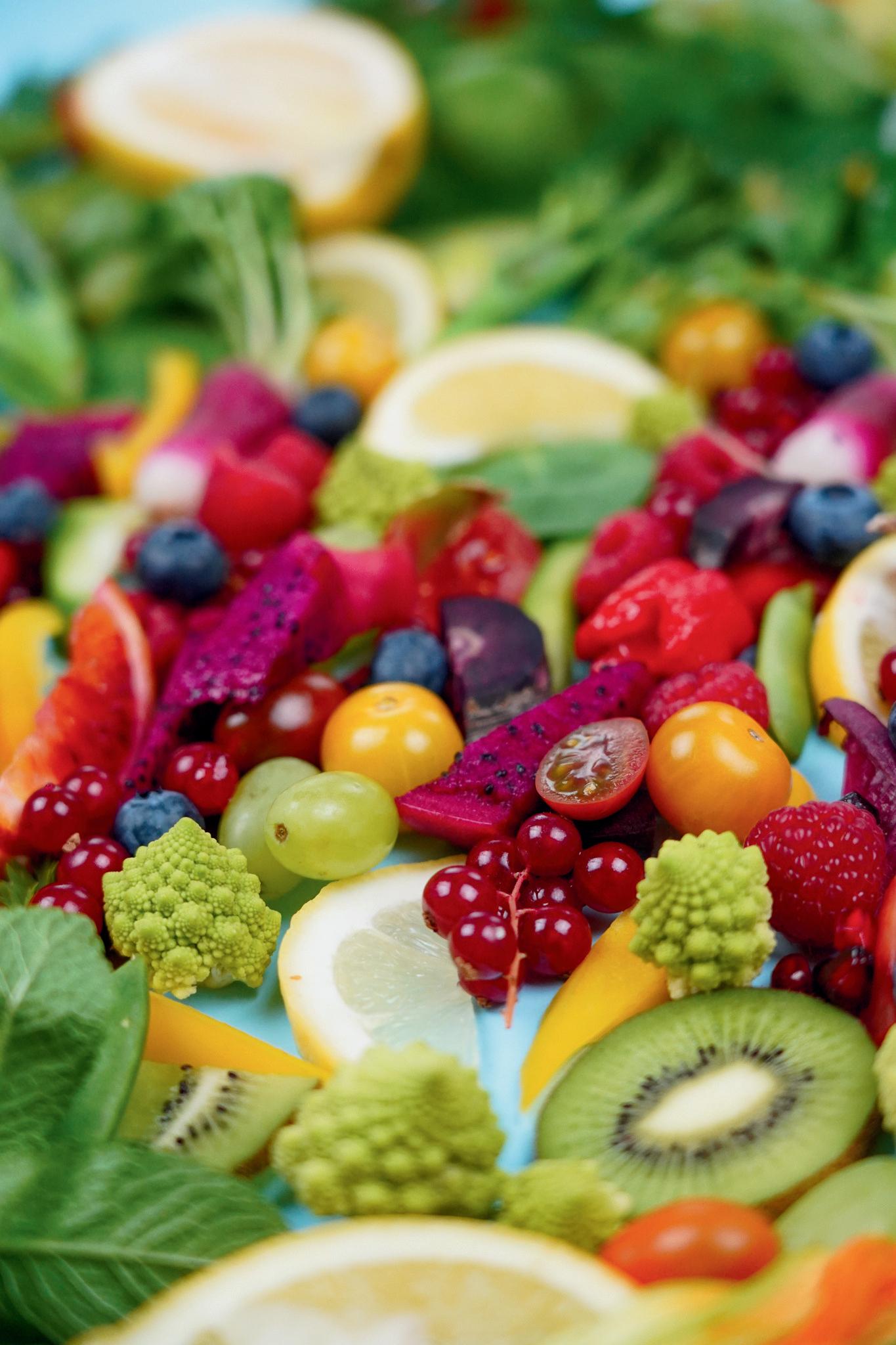




Quality, service and efficiency were the name of the game for Vitacress in 2023. The Hampshire-based salad and herb supplier reported a 12 per cent increase in total revenue to £173.4m as it began its recovery from a “very challenging” 2022.
Salad crops grown in southern England (Vitacress Salads), Portugal (Vitacress Portugal) and Spain (Vitacress España) are packed yearround at the company’s Hampshire facility. And chief executive Chris Jinks credits improved packing efficiency as one reason for better momentum in the salad business after new machinery was installed at the company’s refurbished St Mary Bourne factory.


He adds that the company’s UK fresh herb business in Runcton, Vitacress Herbs, maintained its position as market leader thanks to a major focus on delivering top quality, customer service and product innovation.
At the same time, Vitacress kept its environmental focus, investing in several projects at Vitacress Portugal to reduce its water consumption and dependency on local resources.
Jinks describes 2024 as a good year for the business, with teams “focused on guaranteeing supply to customers and delivering greatquality product”. He adds that the company strengthened its relationships with key customers.


Fresh-cut fruit supplier Blue Skies weathered inflationary and meteorological storms to climb three places in this year’s FPJ Big 50 Companies.
The 2023 reporting period saw the collapse of similar fresh-cut businesses and “immensely challenging” climatic conditions, CEO Hugh Pile tells FPJ. Yet, thanks to its business model with operations across eight countries, Blue Skies described 2023 as “a good year”.
Strong topline growth has continued in 2024, Pile says. But this has been offset by pressures against all costs. “In particular, raw material becomes increasingly difficult to predict as seasons shift, yields change, and varieties perform in
*53-week turnover
unexpected ways,” he explains.
Nevertheless, 2024 saw the launch of Blue Skies’ new Fruit+ portfolio, a range of desserts, jellies, yoghurts and breakfast pots.
“The launch has been very successful, with strong sales and excellent feedback from customers and consumers,” Pile says. “We will look to innovate further and bring new products in 2025.”
The business is also investing in expanding its capacity across its network, specifically in Brazil, Ghana, Egypt and Benin, Pile reveals. “This capacity growth offers us yet more flexibility as we will be able to dial up orders from sites where the fruit is best, optimising quality and ensuring supply.”


Kettle Produce posted a £14.7m increase in turnover in the year to 27 May 2023, although profitability continued to be a challenge for the Fife-based vegetable supplier as the weather played havoc with the company’s plans.
Describing the period as a “year of mixed fortunes”, finance director Liz Waugh wrote in the annual report that the company made an atypical number of sales to nontraditional markets at punitive margins during the first quarter to clear surplus old-season crops.
As the business approached the key winter trading period, substantial rainfall followed by significant frost caused supply chain disrup-


tion in both the UK and Europe.
“We returned to normal trading patterns in the latter stages of the financial year, but such was the impact of the first six months that we were unable to offset earlier losses,” Waugh explained.
The board subsequently implemented various project streams in addition to a business restructure to reduce operating costs, leading it to predict a return to profitable trading.
Aside from its core business, Kettle Produce runs a number of charitable initiatives, including food donations and sponsoring a local Athlete with a Disability Award, as well as organising events to recognise staff achievements.
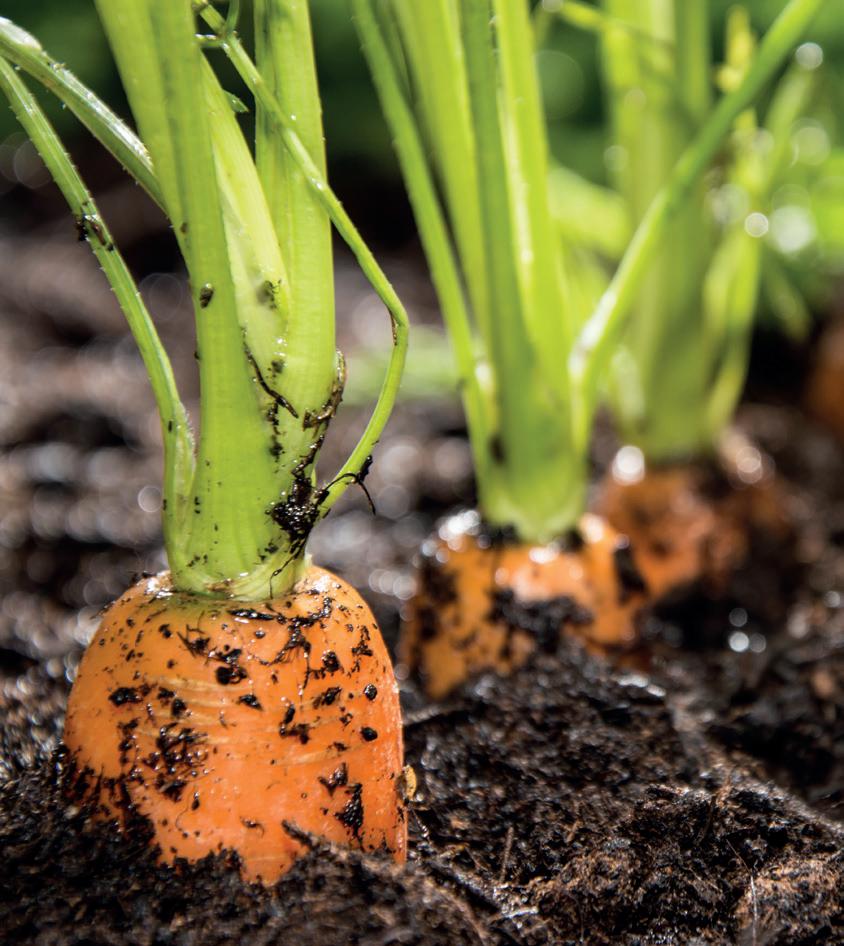

Worldwide Fruit faced two major challenges in 2023: inflation and the huge impact of extreme weather on its grower partners in New Zealand, Italy, Peru, Chile and Spain. Despite that, and a £8.9m drop in turnover to £157.5m, operating profits remained largely unchanged as the company toasted a “robust performance”.
Reflecting on the year, chief executive Steve Maxwell speaks passionately about ‘resilience’ –both from his own staff and the company’s partners. “2023 was a year for resilience, and our grower, supplier and customer relationships are incredibly strong,” he says. “But if last year was about resil-
ience, 2024 has been about building on positive momentum. I’d say one of the biggest challenges in our industry this year has been supply chain resilience, with shortages on shelf, but we’ve had a real focus on availability and that’s worked well.”
Maxwell says Worldwide’s Enterprise Excellence system has kept the company focused on improvement, and praised his team for meeting the challenges.
The first quarter of 2025 will see Worldwide extending its Softfripe avocado-ripening facility, while the business also plans to build on the success of its apple brands. “Excluding the impact of the National Insurance rise, I’m really positive,” he concludes.


These are tough times for the berry sector, with Angus Soft Fruits (ASF) outlining a debilitating series of challenges, not least sharp increases in labour, fertiliser, packaging and transport costs. That has seen the retail price of soft fruit rocket, putting pressure on sales.
Managing director John Gray says ASF has taken a strategic three-pronged approach to these challenges, namely investing heavily in its AVA breeding programme, expanding its export footprint into the Middle East and Asia, and maintaining a commitment to exceptional quality.
Varietal development is a passion for the business, which


recently launched raspberries AVA Monet and AVA Dali and has several promising new strawberry and blackberry varieties in commercial trials. There is also a focus on adopting smarter farming technologies to ensure the business remains competitive, resilient and at the forefront of innovation.
“We remain optimistic about the year ahead, confident that our unparalleled quality, strong retailer relationships, and industry-leading varieties position us well for continued success,” Gray stresses.
“Encouragingly, retailers are becoming more attuned to the cost pressures facing soft-fruit growers and the need for fair returns to sustain production. “
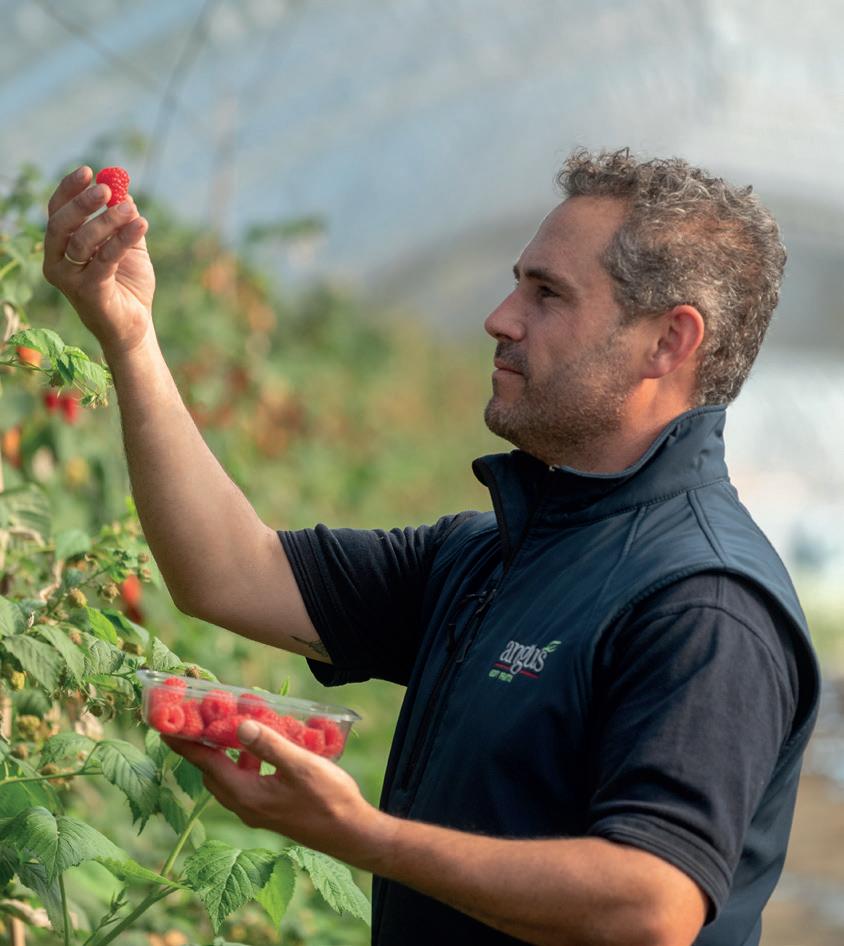

In these days of increased scrutiny on domestic food security, businesses such as Thanet Earth are invaluable.
The Kent glasshouse operator grows a vast amount of salad vegetables, and enjoyed eight per cent turnover growth in the year to 26 April 2024 thanks to increased activity with several customers across its full product range.
While the financial report warns of the impact of inflation and general economic conditions in the year ahead, head of commercial James Provins stresses that the 2023/24 financial year continued in line with the previous two and once again featured steady growth. Further growth should also
come after the business made its first foray into lettuce production with the acquisition of a Chichester greenhouse facility early in 2024. The site is slated for further investment as it becomes a centre of excellence for year-round lit hydroponic lettuce production. Meanwhile, additional investment in Thanet Earth’s main Birchington facility will focus on robotics and automation upgrades.
“The new year always offers a good chance to maximise sales as consumers seek out healthier options, and we believe our product range and proposition is well positioned to allow our customers to make the most of that opportunity,” Provins concludes.
Originating in the beautiful orchards of New Zealand, JAZZ™ apples are now also grown in prime apple growing regions across the globe, including Chile, Europe, Australia, the USA and, of course the UK.
Annual investment in Research and Development optimizes growing and storage practices. Technical support to supply chain partners ensures our best practices & stringent quality standards are consistently achieved.
The T&G ™ Global model guarantees that JAZZ™ apples will be consistent in taste, texture and appearance.





With many foodservice and retail customers looking for a one-stop shop to make supply more efficient, multi-category suppliers are central to the UK’s food system. FPJ profiles three businesses offering the complete package
When it comes to range and scale, few can compete with Brakes –the UK’s leading wholesale food supplier. The business – which is part of Sysco, the largest foodservice company in the world – supplies over 9,000 fresh, ambient and frozen products, as well as catering supplies and equipment.
The foodservice behemoth had a strong financial year in the 52 weeks to 2 July 2023, seeing turnover surge from £3.9bn to £4.8bn. Meanwhile, pre-tax profitability increased from a £57.2m loss to a £33.7m profit.
In February 2024, parent company Sysco announced plans to adapt a former Amazon site and create its largest depot in Europe – a $100m 475,000 sq ft facility for serving customers across London and the South East. As well as improving customer service through technology, the new depot will add significant extra capacity to the company’s existing network in the South East.
Multi-category foodservice supplier The Menu Partners went from strength to strength in the year to 28 March 2024, with turnover rising to £273.4m and pre-tax profit increasing to £7.7m.
Co-founder Jason Tanner said it was a challenging period due to the higher cost of goods and labour, as well as weather affecting crops in the UK and Europe. Nevertheless, The Menu Partners

was boosted by new business wins and continued growth with existing customers.
When it comes to new ventures, 2024 was a busy year for the company, which launched its own vegetable and salad brand Jameela; set up a JV with The Stickleback Fish Company to add fish to its offering; and grew its supplier network in the UK and Europe.
Over the last three years, The Menu Partners has made some major investments to future-proof its facilities and prepare for business growth. In 2024 it opened a new 40,000 sq ft wholesale facility at New Covent Garden Market, as well as a state-of-the-art butchery with meat partner Aldens in Bicester.
In addition, The Menu Partners has invested in a new packhouse in Rwanda, where it will work with local farmers to grow a number of vegetables for export to the UK, all under its new Jameela brand.
It’s a name you might not have heard before, but Bradford-based Myton Food Group claims to be British farming’s biggest single direct customer. The supplier, which is the food manufacturing arm of Morrisons, rebranded as Myton in 2023, reportedly in the hope that distinguishing its wholesaling activ-
ities from Morrisons would yield more business from other retailers, restaurants and catering firms.
The name is a reference to Myton Hall – the Yorkshire mansion of the late Sir Ken Morrison –who transformed Morrisons from a small grocery store into one of the UK’s biggest supermarkets.
According to its website, Myton deals directly with over 2,700 British farms and boasts a whole range of manufacturing facilities. As well as fruit and veg, the company packs and processes fresh meats and fish, savoury and sweet pies, flower bouquets, bread and more.
The supplier took on its first produce factory, in Bradford, back in 1976. And more recently, in 2021, the company acquired Cornish fish supplier Falfish. fpj
ABOVE—The Menu Partners has made major investments in the past three years


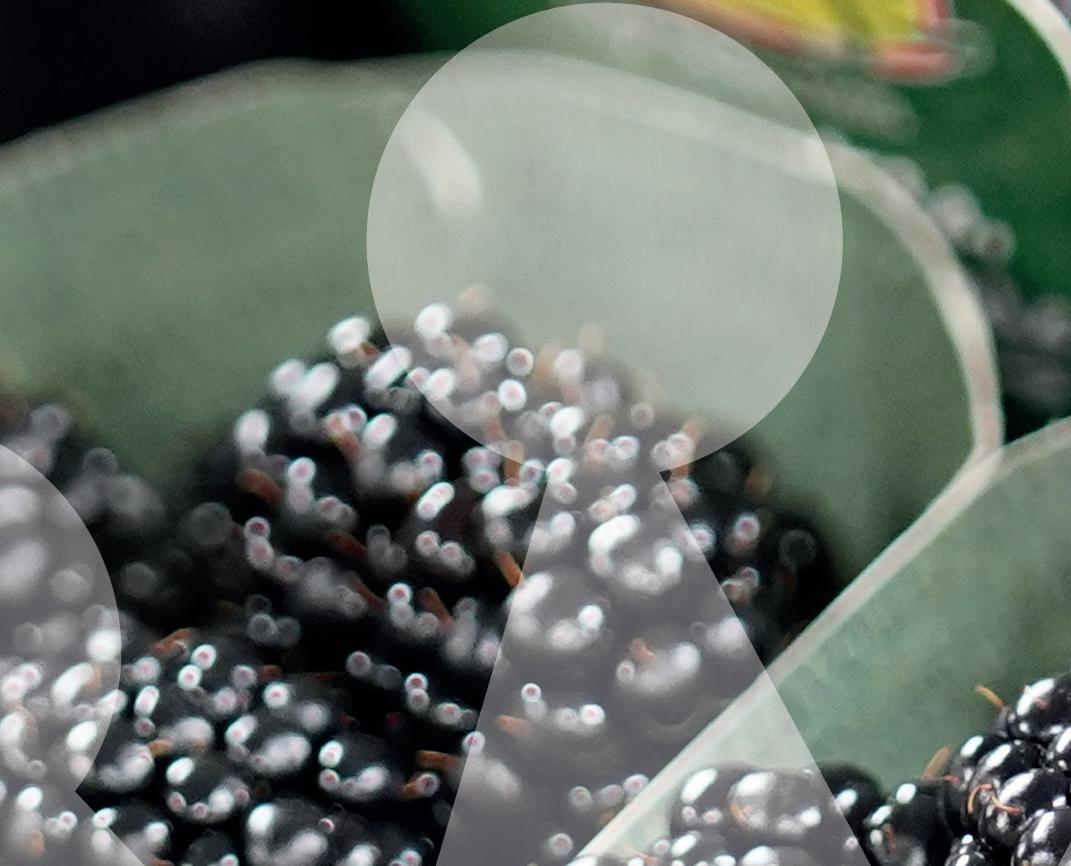



















Belgian fruit and veg cooperative REO Veiling is enjoying greater demand from the UK since Brexit, the group’s sales manager Philiep Willems tells FPJ. The co-op comprises some 1,000 producers who, combined, sell 250,000 tonnes of fresh produce each year via the REO auction. The organisation, which is based in the Belgian town of Roeselare, has supplied Britain since the late 1980s via exporters.
As the cooperative’s offer and auction-house volumes have expanded over the last 30 years, so too has interest from the UK, Willems reveals.
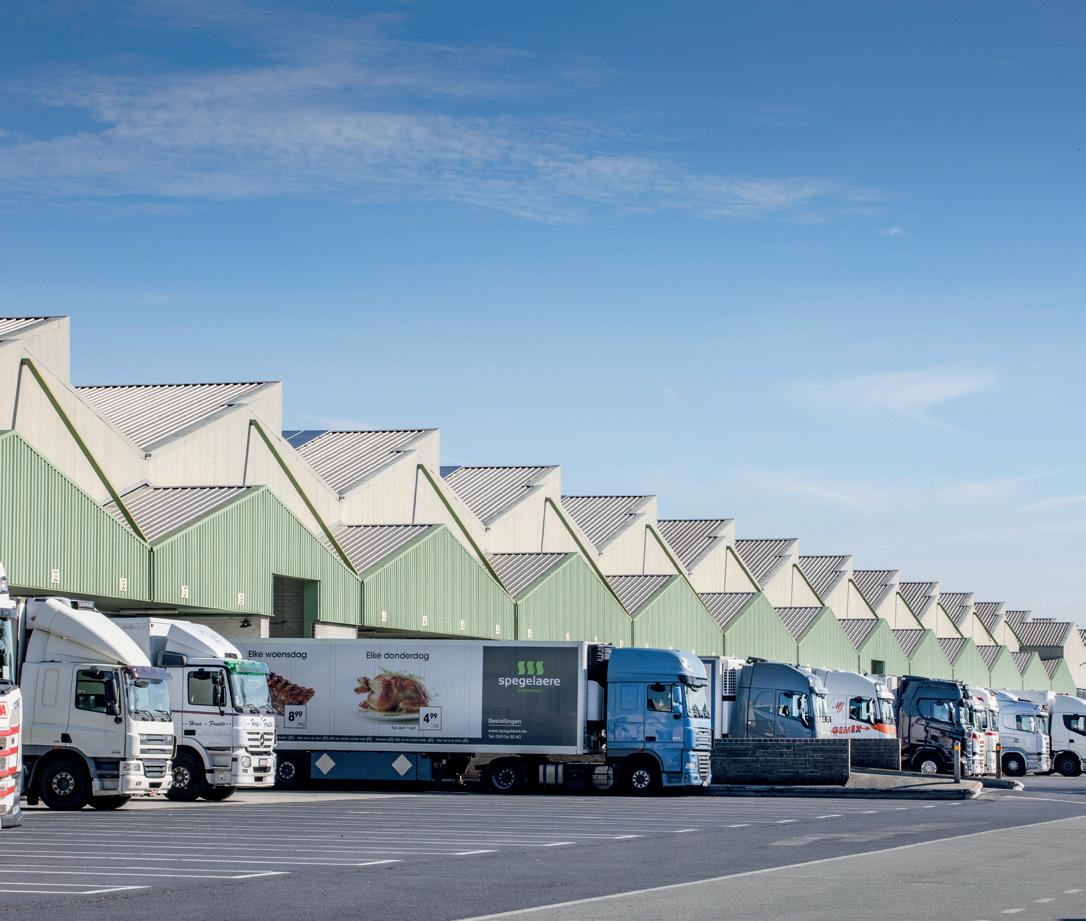
But it is only more recently, since Britain left the EU, that demand is really hotting up. “Before Brexit, there was greater competition from the Netherlands,” he says. “Logistically, the Dutch export trade was better organised and more concentrated. The mentality of a Belgian exporter differs somewhat from that of a Dutch wholesaler.
“As several companies have grown significantly in recent years and the product range has expanded, interest from the UK has increased. Thanks to the growth of [our] strawberry and tomato producers, we are noticing more tomatoes and strawberries from REO on the UK market.”
French apple grower-exporter Blue Whale is seeing growing demand in the UK, thanks to good availability of early varieties and renewed retailer interest in French product.

The Montauban-headquartered group says it is not interested in competing with domestic UK fruit, but rather filling gaps in supply whenever needed.
“In this business, you have to know when to turn the tap on and off,” says Bobby Barton, Blue Whale’s export sales executive.
“Our production is starting earlier in the season, and lasting for longer,” Barton reveals. “This extends our sales calendar and means we can adapt.”
In recent years, the global apple market has changed, he explains. A drop in southern
hemisphere volumes destined for Europe has cleared channels for northern hemisphere fruit. Meanwhile, UK producers are finding it hard to keep the market supplied for 12 months of the year, Barton says. “This has led to renewed UK retail interest in French apples. As an agile marketer, Blue Whale has a key role to play here.”
La Costiera, the Italian citrus supplier that first brought its famous Sorrento lemons (pictured below) to the attention of British supermarkets a decade ago, is now supplying fresh bergamot to the UK.
Produced near Reggio Calabria, a city located at the toe of Italy’s boot, the plant is synonymous with the region, the company says.
Besides being sold directly to retailers, the plant is also being supplied to UK processors.
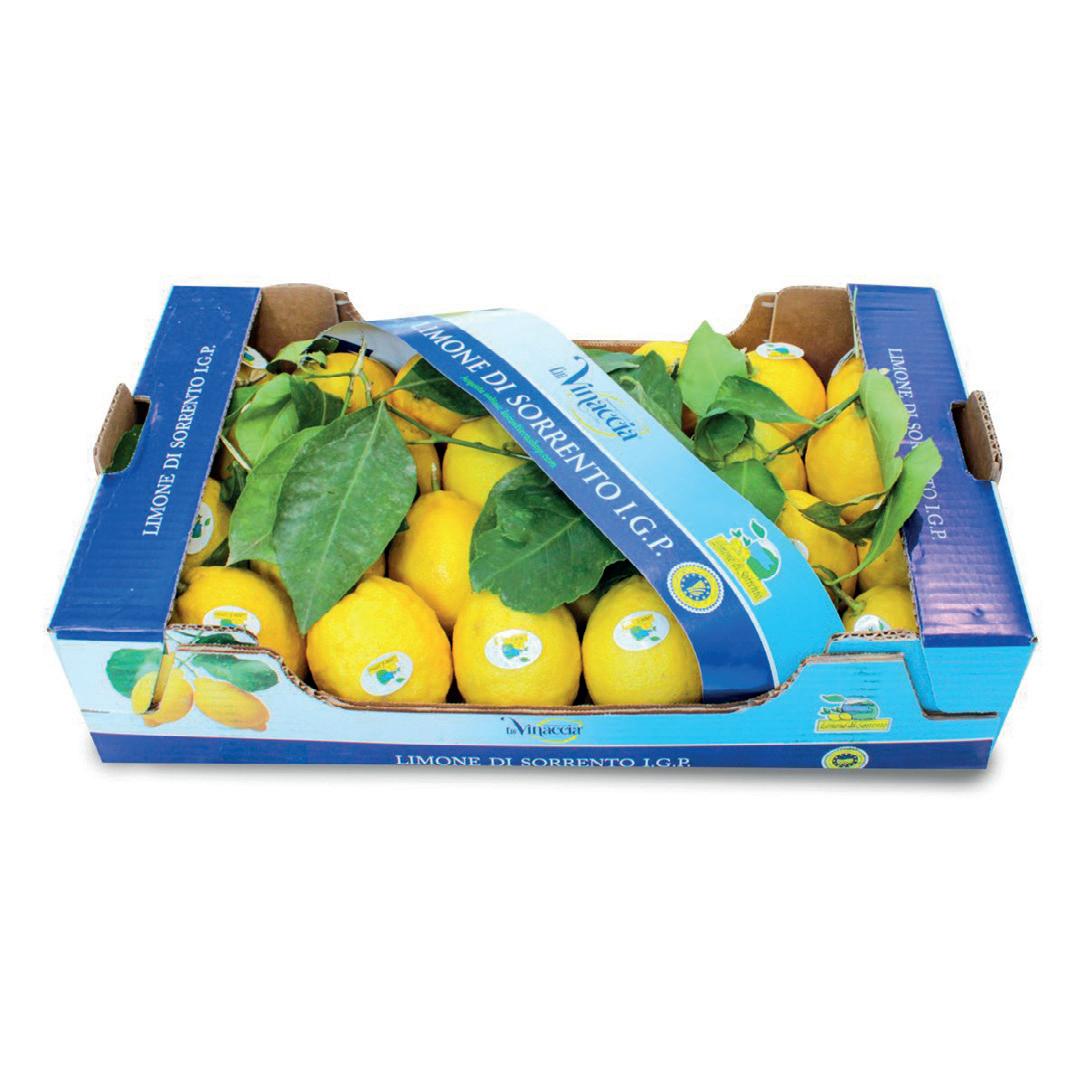
La Costiera made its UK debut in Asda stores in 2014 with its Extra Special premium Sorrento lemons. fpj
After much hype, and some scepticism, vertically farmed leaves have started to appear on supermarket shelves in the past couple of years. FPJ profiles the producers leading the charge, as well as other innovators in the sector
The focus at Jones Food Company (JFC) is on delivering a premium product, with good shelf life and a great taste profile, but at a price that everyone can afford. Company boss James Lloyd-Jones says that in vertical farming having enough headroom in your pricing and cost base is key, so that if costs go up, you still have a sustainable margin.

In September 2023, JFC launched its branded ‘Homegrown’ range at Asda, priced at £1 year-round. Then in February, the company opened what it claims to be the world’s most advanced vertical farm (pictured), in Lydney, Gloucestershire.
Known as JFC2, it is the producer’s second site and was built to supersede JFC’s original facility in Scunthorpe, Lincolnshire. JFC2 grows and packs salad mixes and basil for supply to a number of SKUs at Ocado and Asda, all of which are now ‘ready to eat’.
Lloyd-Jones says JFC is looking to open eight more sites in the UK over the next five years, for both ownlabel and branded products. There are also plans to produce a wider range of potted and cut herbs, as well as house plants for retailers and garden centres.
Vertical farms have been around for some time now, but it is only in the past couple of years that vertically farmed produce has really gained a foothold at the major multiples. One business that has burst onto the scene at the supermarkets is bagged salads producer GrowUp.

In 2024 the business launched its Unbeleafable range at both Sainsbury’s and Co-op, as well as expanding the offering with the addition of a Zesty Baby Leaves SKU (pictured) containing sorrel and a mix of green and red baby lettuce leaves.
The new product won two prizes at The Grocer’s New Product and Packaging Awards, while the wider company picked up awards for SME of the Year at the Edie Awards and Sustainability Excellence Champion (Climate) at the FPC Fresh Awards 2024.
Crucially, GrowUp also announced a £38m investment from Generate Capital earlier this year, which will help the producer expand capacity at its Kent vertical farm and drive R&D at its lab in Cambridge.
Poor produce availability has hit the foodservice sector hard in recent years, but Fischer Farms has been able to support its customers thanks to the year-round availability, better shelf life, and high quality of its vertically farmed short-leaf salads and herbs.
According to founder and group CEO Tristan Fischer (pictured opposite, left), 2024 was another year of growth for the producer, which has focused on commercialising its UK farms, in Lichfield and Norwich, and building its customer base across the B2B and foodservice markets.
The year also saw the appointment of Chris Kirke as CEO, bringing with him 26 years of FMCG experience, as well as CEA plant scientist Dr Phillip Davis as NPD and innovation manager.
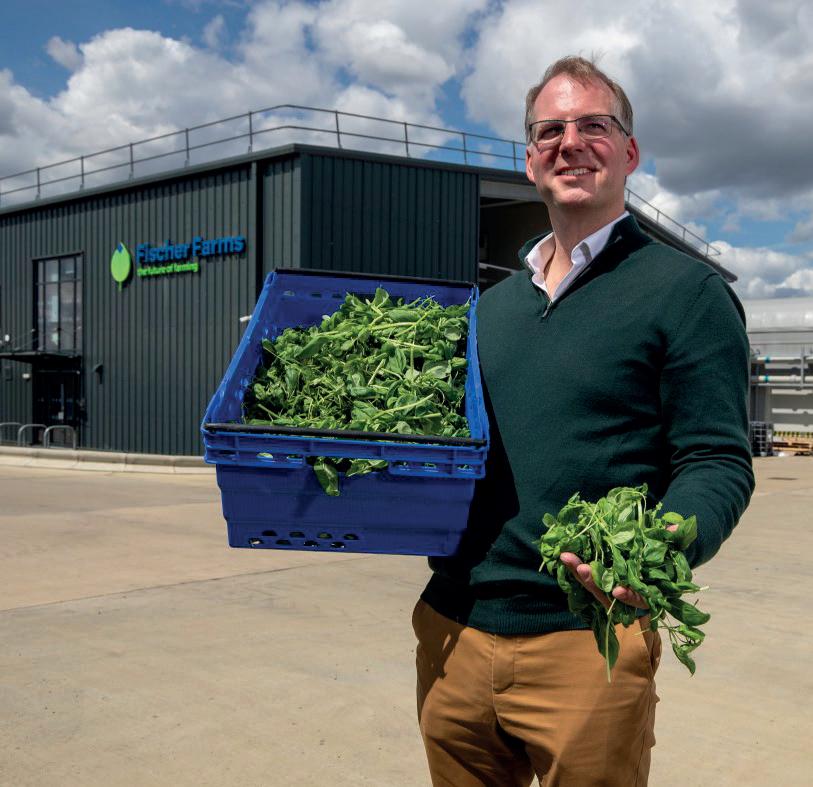
Looking ahead, Fischer says the business is “scoping out” what its future UK farms will look like, as well as considering opportunities globally. With ambitions to boost food security, the producer plans to move into soft fruit, rice, wheat, soy and peas further down the line.
CEA tech company Vertical Future has come a long way since it was founded by scientist and entrepreneur Jamie Burrows (pictured right) in 2016. The company began by building a small vertical farm in southeast London, supplying microgreens to a range of customers, before Burrows and his team decided to develop vertical farming technologies of their own.
In 2022 they landed what was the largest Series A funding round in Europe for a vertical farming tech company. And in 2024 they were recognised as the number-one CEA technology company globally in the FoodTech 500, dubbed ‘the Fortune 500 of AgriFoodTech’.
It’s fair to say that 2024 was a big year for Vertical Future. The company partnered in a project to

produce millions of healthy tree saplings for reforestation; launched a range of new CSaaS solutions; completed its Series B+ funding round; and made plans for more large-scale vertical farms internationally.
Vertical Future was also awarded a grant of £1.5m to deliver the second phase of a project to grow crop crops vertically in the first commercial space station, due to orbit in 2026. FPJ
small details ... big difference
What sets Sormac’s ingenious PepperCorer PC-55 apart is its ability to perform 4 key processing steps in one seamless operation:
Cutting the stalks
Decoring via vacuum with minimal seed residue
Cutting and capping the bell pepper (optional)

Opening and distributing the pepper into pieces (optional)

Sormac Ltd
Suffolk, UK
T: 01284 530 700
E: info@sormac.co.uk www.sormac.co.uk
We round up the latest varietal launches and news at some of the most innovative seed breeders serving UK growers today
The past year has been a busy one for vegetable breeder BASF Nunhems, according to customer marketing specialist Naz Ahmed. The company has released new varieties right across the vegetable sector, from high-yielding carrots Florance and Durance, to the new leek Flexiton, which BASF says is rapidly gaining a reputation for its uniformity and being easy to clean. There have also been launches in the protected tomato sector. Crunchy-but-sweet ToBRFV-resistant cocktail variety Marvellion has joined the likes of cherry tomato Vitalion and new larger varieties Ronvine and Starvine. Meanwhile, under-trial iceberg lettuce varieties NUN01361 and NUN01367 are said to be exciting propositions due to their resistance to the latest race of downy mildew, Bl:41EU.
Another big moment for the breeder in 2024 was the opening of the BASF Nunhems Tomato Tasting Experience Centre in The Netherlands. Featuring over 150 varieties, and modern meeting facilities, Ahmed says it is the perfect place to showcase BASF’s ToBRFV-resistant innovations.
Japanese-owned seed breeder Sakata UK has built a strong reputation for delivering innovative new vegetable varieties to Britain’s growers – and the 2024 season was no different.
For the first time, a commercially viable butternut squash variety, Mieluna F1, is available for UK pro -
duction. And Sakata says it is ideally suited to the UK due to its speed of growth, uniform size and shape, internal qualities, and Brix.
“The UK’s appetite for butternut is huge and heavily reliant on imports from across the world,” says James Blore of Sakata UK. “With the introduction of Mieluna F1 it is hoped that UK growers can now offer a more sustainable product for their customers with reduced food miles.”
Dutch breeder Rijk Zwaan celebrated its 100th anniversary in July and the business continues to move with the times by developing varieties suited to the challenges of climate change and changing market demands.
Recent releases include butterhead lettuce variety Manet and frisée variety Exira, both of which address a market gap for mildew resistance. Rijk Zwaan also continues to innovate with its Knox lettuce trait (present in Exira) to reduce pinking in cut lettuce. This extends shelf life and significantly reduces food waste.
In tomatoes, the breeder’s Rugose Defense range offers high resistance to ToBRFV. And in the UK, resistant varieties include cherry tomato Hyrule RZ, cocktail tomato Rexoso RZ, and large vine tomato Prospano.
Looking to strengthen connections with customers and partners, Rijk Zwaan will open a new facility in spring 2025 called the Seed Connect Centre in De Lier. It will
BELOW—Sakata says its new Mieluna butternut squash is perfect for the UK market

expand capacity for seed cleaning, processing and packaging, and includes offices, meeting and conference rooms, and a restaurant.
Independent vegetable breeder Tozer Seeds has come a long way since it was founded by renowned seedsman Arthur Tozer in 1944. Today the company exports seed around the world, with bases in Surrey, the US, Spain and the ‘Dutch Seed Valley’.
The past year was a fruitful one for Tozer in Europe, not least in cauliflower and squash. In 2024 the company began marketing the seven-variety winter cauliflower range from Breton breeder OBS, as well as renewing its own pumpkin and squash offering.
Tozer recently launched two of its own warted pumpkin varieties, Zombie and TZ 8484, as well as a high-quality and sweet Coquina-type butternut squash called Inca Gold. Also new to the Tozer range are Fright Night (a small, dark Halloween pumpkin), Crystal Star (a medium-sized, bright white pumpkin), Rosie (a pink kabocha squash), and Porcelain Doll (a large Maxima-type pink squash). fpj



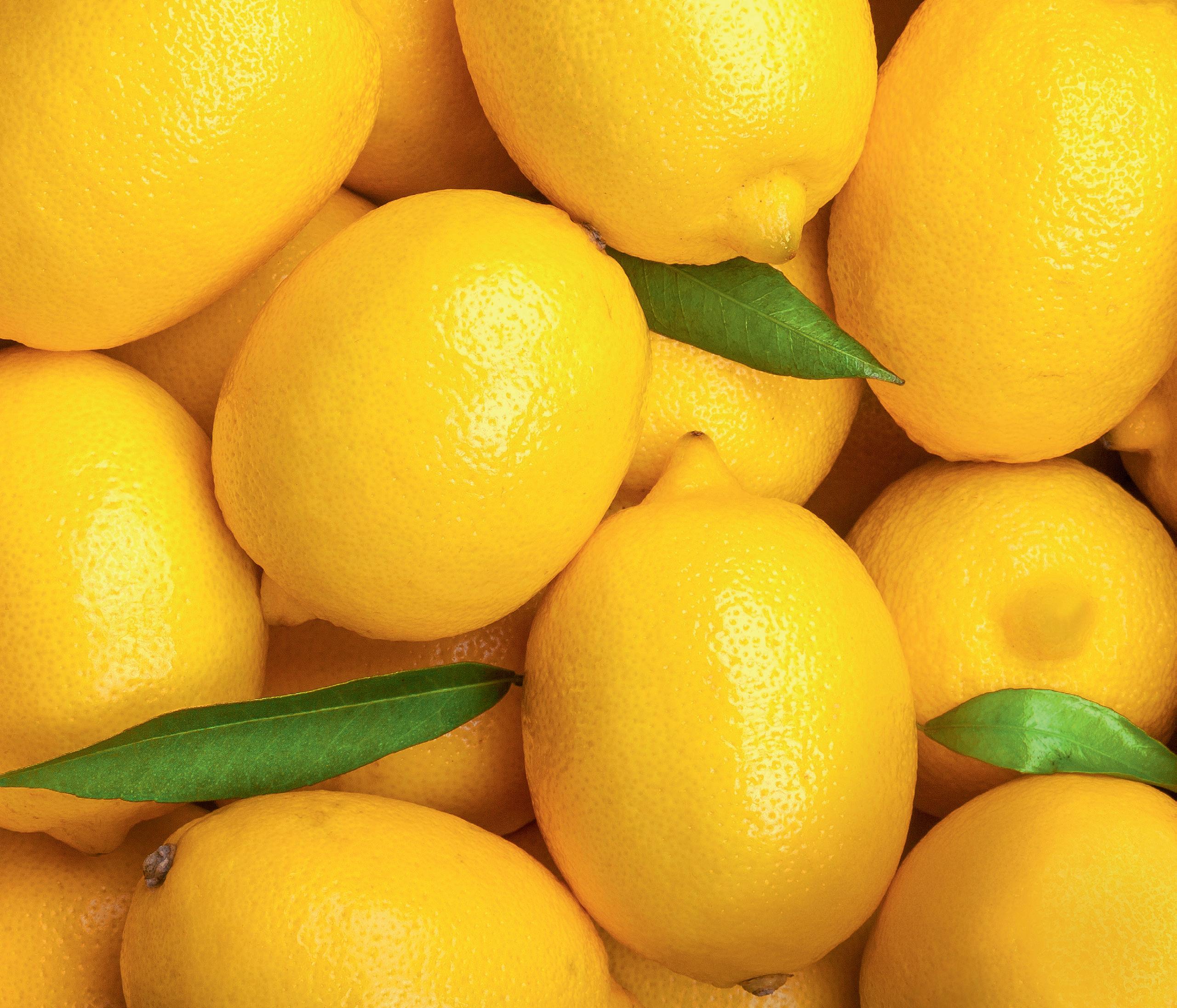

FPJ spotlights five UK firms whose packaging is helping boost sales and sustainability
New cardboard packs for Zespri kiwifruit sold by UK retailer Tesco have apparently raised consumer awareness of the brand, contributing to increased sales that were “beyond expectations”.
Ravenwood Packaging, which provided linerless label technology for the packs’ lid section, said the design enabled Zespri to move away from the traditional plastic flow wrap format as it embarked on its first major supply contract with Tesco.
Ravenwood says its linerless products offer retailers a sustainable alternative to help them avoid the UK Plastic Packaging Tax, which is increasing from 1 April 2025.
At rival supermarket Sainsbury’s, Produce Packaging’s latest ‘EverGrow’ range of retailer-approved top-sealable paper punnets are also proving a hit.
The firm’s marketing and business development manager, Kyle Murdoch, explains that the punnets are an excellent print medium, allowing growers to maximise their branding space while meeting consumer demand for alternatives to plastic packaging.
“EverGrow for Sainsbury’s Taste the Difference soft fruit has been very well received,” he tells FPJ, “and I expect it will grow in volume and range for 2025. Discussions with other potential retail outlets continue.”
Also in soft fruit, packaging manufacturer Sharpak has collaborated with UK berry grower Chambers to bring its padless SharpTek technology to retail shelves.
The market-first solution cuts packaging weight by 17 per cent and offers a pack – for raspberries and other delicate berries – that is fully recyclable at kerbside. The launch follows Sharpak’s launch of a padless strawberry punnet, in partnership with Angus Soft Fruits, in 2022.

Sharpak said SharpTek is the culmination of years of “meticulous development and rigorous testing to achieve a packaging solution for delicate berries that removes the requirement for glued absorbent pads”.
Trying a different tack, Elliott Absorbent Products is launching a soft-fruit pad, called Echo, designed to cut plastic and food waste. The firm says its Echo pads are 100 per cent plastic-free and compostable, and extend the
shelf-life of berries by up to 12 hours. The pads are made from sustainable straw crop residues, along with perennial grasses and annual fibre crops. They are designed with an embossed surface to cushion the fruit and minimise spoilage and waste. Importantly, they can also hold approximately 500ml water per square metre with no need for perforations.
Elliott highlights that in the UK alone, over 5.3bn fruit pads end up in landfill each year.

Also harnessing natural resources, Bristol-based sustainable packaging start-up Kelpi has announced a £4.3m investment that will enable it to scale up production of its proprietary seaweed-based paperpackaging coating.
This latest round of funding will be used to recruit more scientists, engineers and commercial staff to conduct large-scale pilots of Kelpi’s coating, which has been in lab development for the last three years. The investment will also help Kelpi build on its packaging partnerships with UK food and drink businesses, such as Waitrose and the supermarket’s tropical fresh fruit supplier Blue Skies.
Paper and card packaging coated with Kelpi’s pioneering seaweed-based polymer can entirely replace plastic packaging, the company says, and the resulting packaging is recyclable, compostable and marine-safe. fpj

Amid the sea of lorries traversing the UK every day, several names are strongly associated with fruit and vegetable haulage. We pull out four key names

A familiar sight on the nation’s roads, Turners have been moving fresh produce around the country since brothers Wallace and Frank Turner bought their first vehicle and delivered loads from their father’s Cambridgeshire farm in 1930.
Today, the business operates 2,637 vehicles from 32 sites, employing over 4,300 people. With a turnover of £556.3m in 2023, the company is one of the largest serving the UK fruit and vegetable sector.
Despite directors reporting challenging market conditions last year, the group continued to hit the acquisition trail, snapping up 100 per cent of Lynn Star Distribution and Logistics, 50 per cent of DRS Logistics, and the remaining 20 per cent of Jack Richards and Son.
Temperature-controlled distribution specialist FreshLinc is another logo which immediately turns minds towards fresh produce.
The Spalding-based firm reported income of £139.7m in the year to 3 February 2024. It was a challenging period for the transport sector, characterised by falling fuel prices, leading to reduced fuel surcharge revenues.
The loss of a significant contract, due to a retailer taking its distribution in-house, was largely offset by
entry into new arenas and the continued development of FreshLinc’s specialist haulage operations.
The opening of a brand new 140,000 sq ft ambient stockholding and value-added distribution business in Peterborough, with capacity for 24,000 pallets, was also a highlight for the business.
Another logistics firm based in the vegetable heartland of Spalding, Fowler Welch describes itself as a UK supply chain and logistics expert specialising in flexible, reliable and cost-effective supply chain services.
The company, which posted a turnover of £198.6m in 2023, has been putting a huge focus on sustainability in recent times –investing in more carbon-efficient equipment, adopting innovative technologies, and implementing strategic carbon-reduction collaborations with customers.
Fowler Welch has also been
running a partnership with FareShare since 2016 that has seen it collecting surplus food from its customers and delivering them to the charities that FareShare works with.
Perishable goods transport specialist PML was acquired by Seafrigo in July 2023, in a move that was billed as bringing expanded capabilities and opportunities for both businesses.
In the UK, the company operates from Heathrow, Lincolnshire and Kent and covers air, ocean and road-forwarding activities, as well as offering warehousing and value-added services to customers.
Away from the big talking point of the takeover, PML boss Mike Parr has been a voice for the logistics and fresh produce sectors this year, calling for uncertainty around new border arrangements to end. fpj
0% tariff on UK imports

The California Prune Board have welcomed the UK Government’s decision to suspend the UK import tariff on prunes, prune juice* and prune juice concentrate* until at least 30th June 2026. Fresh,
and smooth, California Prunes taste like no other. They are the result of the finest growing conditions on earth combined with the highest agriculture standards of any nation. You’ll taste the difference – and so will your customers. Choose
